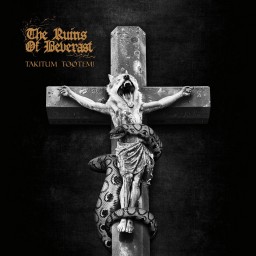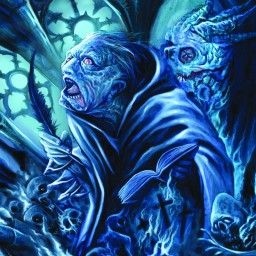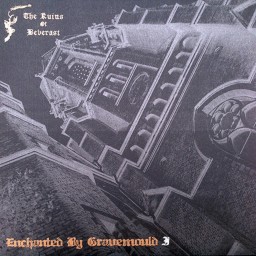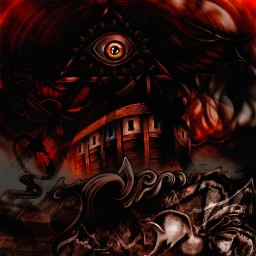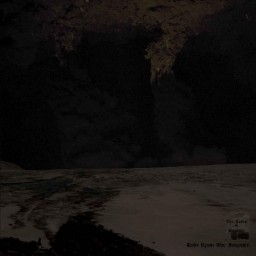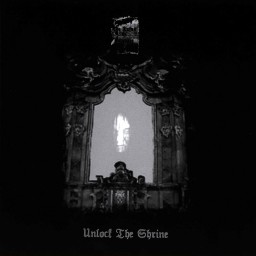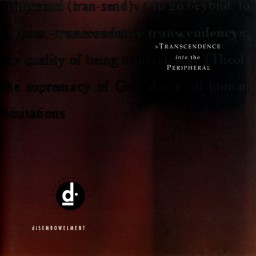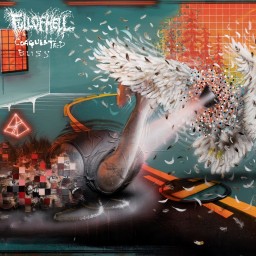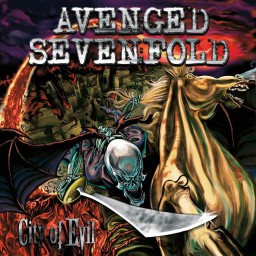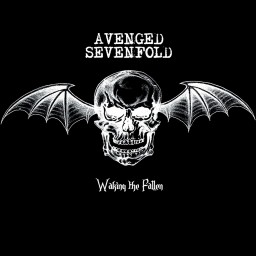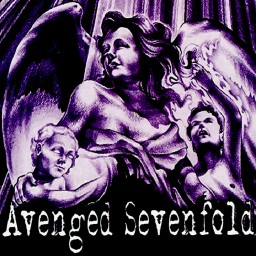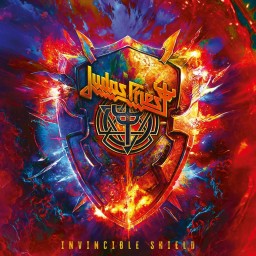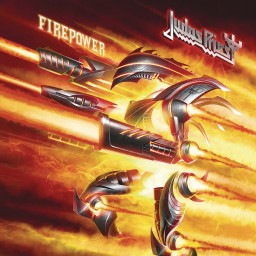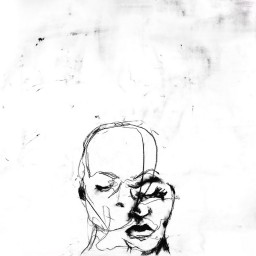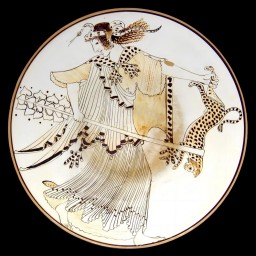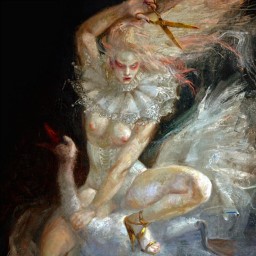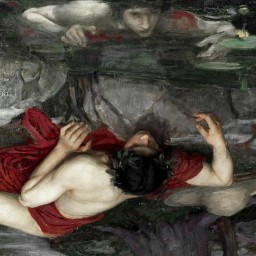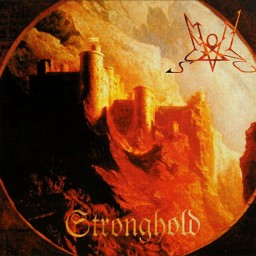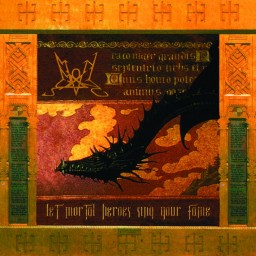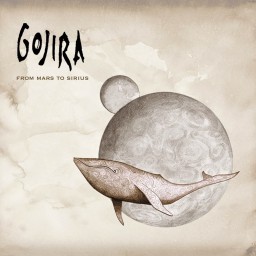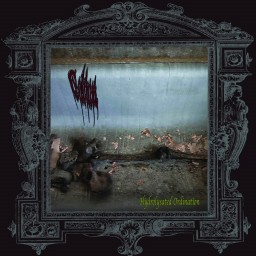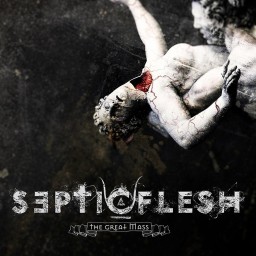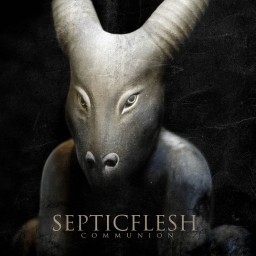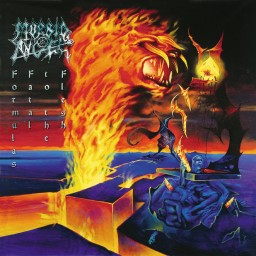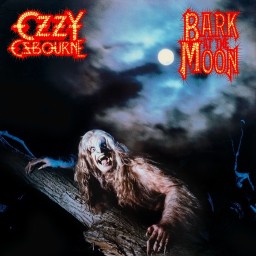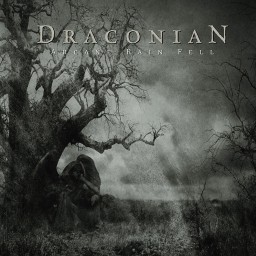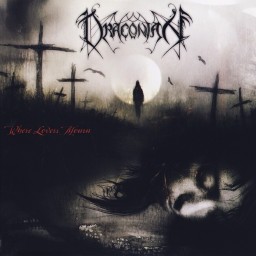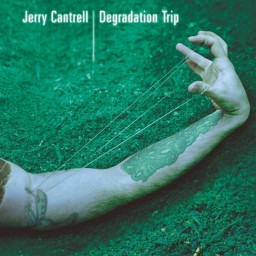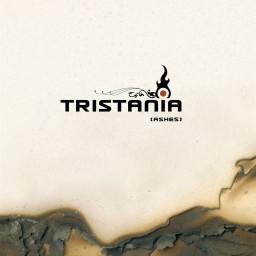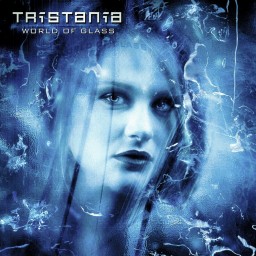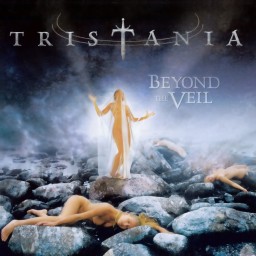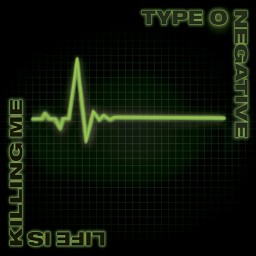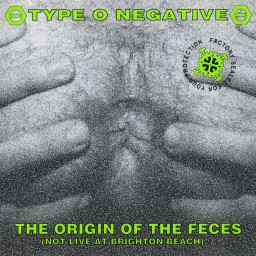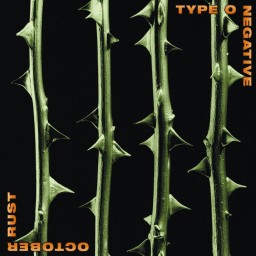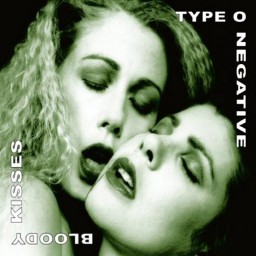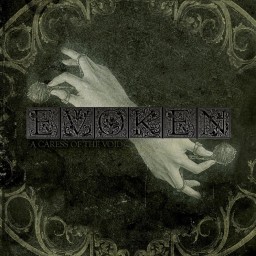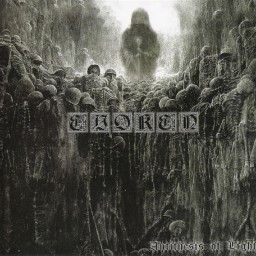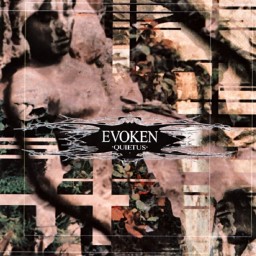Rexorcist's Reviews
The Ruins of Beverast marathon #7 - Takitum Tootem!
OK, so I'm reading about this album on RYM, and it tags the EP as "tribal ambient" and "black metal." So here I am thinking, "OK, this is gonna be one of the coolest fucking things ever, or a mess." The ratings don't look so good on RYM, but that didn't stop me from checking out their demo. I had a few theories as to what this album would sound like, but I didn't care which one was right. I just wanted to jump right into it after I had gotten that chronologically far in RoB's discography.
Track one of two: Takitum Tootem! (Wardance). It starts out with a dark ambient intro with mild tribalism that evolves into a long black metal riff. The riff itself has a very metal energy about it that isn't so much "evil" as it is "cool" and "dark." Tribal drumming rides the whole rest of the track. Unfortunately, it stays that way for 75% of the song with very few meaningful shifts. I'm surprised at RoB for doing that.
Track two: Set the Controls for the Heart of the Sun: This one gets right into the weird tribal atmospheres and instrumentation. It's practically invoking images of fighting zombies in an ancient temple. The atmosphere and instrumentation are PERFECT. Around three minutes in, we start to see occasional ghostly vocals like something out of a Metroid game. Black metal guitars are also used sparingly at first for build-up. It speeds up at the four minute mark, turning into pure tribal black metal as guitars overlap each other level upon level like the ending act of Nine Inch Nails' Closer. It stays that way for a moment before drowning down to a dungeon ambient tune that carries over the Metroid mysticism, going through various Lovecraftian sound effects before returning to the main riff of the beginning, but with more "technological" aspects. Genius moves on their part. Now it sounds EXACTLY like something out of a Metroid game. It ends with two more segments: one final blast of black tribalism, and a weirdass outro with what sounds like some awkward animal noises for a surreal effect.
I certainly wasn't disappointed with this one. This otherworldly EP carries the surreal vibes of Metroid, Cthulhu and even some Juno Reactor songs. The first track was decent on its own, but the second track is one of the coolest ambient tracks I've heard. This is easily a keeper.
Genres: Black Metal
Format: EP
Year: 2016
The Ruins of Beverast marathon #5 - Blood Vaults
I knew this was going to be a turning point for The Ruins of Beverast. From what I understand, much of the black metal sound has been degraded to an amplifier for other doomier projects, but I really wanted to see where this was going to go. Considering RoB's love of the random, I would either love this or hate this. I currently consider The Ruins of Beverast one of the greatest black metal acts of all time, but I'm not as familiar with his doom music. Let's see where this goes...
So the spoken word intro wasn't anything special to me. I mean, I fell like anyone can put together basic synths and a creepy poem together and open an album that way. The fact that his segues on his debut album were so brilliant only make this worse. Thankfully, the first song, Daemon, is there to fill in the emptiness. It starts out as a black doom song but evolves into some oddly appropriate but totally new traditional doom metal for a minute before returning to blackened doom. Daemon is yet another creepy, paced and cinematic whirlwind of organized chaos, and is a perfect opener to this album.
Maleficia starts out dominated by weird repeating vocal effects set to a slow and sparse gothic doom instrumentation, and even lets some effects take over the lead, almost like he's underwater. The song gets a little heavier and black to blackness before taking a direct shift into high-pitched synths and post-metal slowness. This flow is both calming and empowering at the same time, creating something completely new for RoB: a post-metal song, one that I honestly like more than most post-metal albums I've heard. However, the genre-shifting is much more blatant, which can actually fuck with the flow for some. I mean, this song REALLY challenges your dedication to Ruins of Beverast. So the fatal flaw is that the serenity of it all is given very little room to breathe. We have black doom, death doom and even organs near the end overtaking this, so it's a good song but a wasted opportunity for an incredible post-metal song.
We go back to roots here with Ornaments on Malice, which frankly has been done before: a black-death-doom hybrid song again, and it takes three minutes for it to really change pace. But this time, it's a simple, monotone ring with more angelic synths and deep chanting. Eventually the two distinct sounds mold together for something truly epic, if not under-explored. This combination, however, is also bringing to mind the metal artist Hell, also known as MSW. After that is Spires, which spends a good deal of time in the same old death doom territory that we already expect of him with very little to say for the melody, which means this fairly rhythmic track is mostly relying on a familiar atmosphere. There are some weird and quirky moments, but nowhere near enough to drive the song for its 13-minute runtime.
So now I'm hoping A Failed Exorcism gives me something new, even if it ends up being a mess I mean, 15 minutes wouldn't have been a daunting task back in Sheltered Elite. The combination of gothic doom and death doom maximizes the effect of both aspects put together, even to the point where it sounds like THE SONG ITSELF IS ACTUALLY GONNA KILL ME. There's even a touch of prog in the percussions during the breaks. Three and a half minutes in, it takes a totally different persona as the funereal sounds drive a ritualistic drum pattern through another chanted poetic lyrics with some beautiful singing before returning to the original format again, only with the black doom aspects enhanced. The next few minutes go back to balancing the two brands of doom with just as strong of an effect as before, allowing it to feel fresh after its many shifts, and ends with a purely death doom outro that ties all the shifts together in a simple, easy to follow way. Excellent effort.
Next is the three-minute trial, which is all about monotone instrumentation backing up a whole choir. It gets creepier as it goes along, adding new sounds in the background and slowly changing the drum riff to something more active and heavier overtime. Following is another three-minute track, Ordeal, which is a pretty cool black metal track on its own but doesn't hold a candle to the best stuff on the album. Finally we end things with Monumentum, which kicks us off as a with a symphonic funeral piece It switches to a purely doom sound pretty often, which means there are very few surprises left in store by this point.
Well this was a much more mixed bag of ups and downs than I expected. The quality of songs took big rises and drops constantly, and some are just totally forgettable while others are flat-out amazing. It says to me that the current incarnation of The Ruins of Beverast is done and shouldn't be pressed any further, so while there are some songs I'd definitely put on a greatest hits comp, I don't really feel like I have any reason to listen to this again. So I think I'll give it the bare maximum for 3.5 stars: 74/100, as 75 would round to 4 stars.
Genres: Doom Metal
Format: Album
Year: 2013
The Ruins of Beverast marathon #4 - Enchanted By Gravemould
Wasn't really expecting a demos album, but I had to know what the rejects from the first three albums sounded like. Ruins of Beverast is a project that's shown me a whole new world of black metal, one that I hope is much more thoroughly explored by the masses. I REALLY do think it's possible. Did you know that you can get 1000 new black metal studio albums every year? I checked the RYM charts and multiple year charts for this. It's fucking true. On top of that, Darkthrone's updating the doom influence in their modern albums, so I really hope this becomes a thing: blackened doom metal, and not just a small time blanket term for a select few bands like "Philly Club Rap." So I'm going to keep exploring Beverast and the world he created, and that includes demos and rejects like this.
Desert Lair does show some kind of a difference. Maybe the occasional slightly higher timbres don't allow it to feel as dark as what was called for on the albums at first? Maybe the production was wrong because it's a bit more clear? I have no idea, but otherwise, I don't find anything wrong with in. The variations in rhythm, tempo and instrumentation are abundant, but they all flow together perfectly. If anything, this is one of his finest performances. In fact, I checked some reviews to see what people thought, and apparently I'm not off the mark here: this is basically a highlight of RoB's career. It kinda pains me that he left this off his official albums.
The Moselle Enigma goes right into the noisier black metal production, and is a bit off. The noise-factor of the instrumentation is properly messy, but it gets in the way of hearing the vocals properly. Real shame because the rhythms are fantastic. Despite how maniacal this song is, it's surprisingly catchy and intriguing. The second half starts off with rain recordings and more choral vocals, giving us a very bleak imagery that's just PERFECT for the vibe of the song. Part of me wanted this segment to last the remainder of the song, but when it ended I still had a minute left, and it was used on the format of the first half, which I think is perfectly fine this time considering its short length in comparison to the average length of an RoB song.
Hours of the Aequinox is next, and we go into it with a black noise focus and a slower, doomier violin intro just totally chilling me out. A serene song was the perfect way to follow up the last one, and the black noise is the perfect way to follow up the rainy effects. We don't have very many slow-going atmo-black songs that mirror the winter aesthetic, as up to this point, the tones and timbres were a bit deeper.
Those were the originals. Apparently, the last three songs are all covers, starting with Enigma of the Absolute, originally present on Dead Can Dance's Spleen and Ideal. Now Spleen and Ideal is one of the best darkwave albums in the world, so covering it is a daunting task. You'd think a master of black metal would pull it off, and it might've been done had the production been better. The rhythms of the guitars can barely be made out, the percussion's week, and the effects are almost entirely drowned out. It's a real shame. This could've stood with the original.
Next, believe it or not, is a cover of To Have and to Hold off of Music for the Masses, as in DEPECHE MODE. I guess it can be done, as Depeche Mode have dabbled with darkwave instrumentation before. It's a pretty creepy track with its own personality, and I guess it's a slight improvement because the atmosphere and production are improved. But this song doesn't even reach the creative heights of Unlock the Shrine's segues.
The final cover is Symphonaire Infernus et Spera Empyrium by My Dying Bride. Now I've never heard the original EP with this song, but I'm more than aware of what MDB sounds like. I've got several of their albums under my belt. This version uses neoclassical synths to help with the atmospheres, steering into symphonic black metal akin to Summoning. And it really does capture the epic vibes very well, but the problem is that a 16-minute Ruins of Beverast song needs to keep evolving. Thankfully this gets around to that at around the five-minute mark, but I think the pitch of the synths is a bit too high for the deeper timbres of the black metal instrumentation, so I can't really say that RoB rocks symphonic black as well as he does atmo-black, despite this being a pretty cover.
OK, the first three tracks work perfectly well on their own, and even in order, whether or not they were intended that way. The three covers in the second half, however, felt lacking and in need of polishing in order to be great. So if you're a Beverast fan already, I really do recommend this album if not only for the first half. But if you're not, you'll probably hate the covers.
Genres: Black Metal
Format: Compilation
Year: 2011
The Ruins of Beverast marathon #3: Foulest Semen of a Sheltered Elite
OK, it felt a little weird typing that title, but whatever. From what I've heard and read, there's kind of a battle between various Beverest albums for "best one." Obligatory Beatles comparison. Now this guy only has six albums, but four of them are contenders: Unlock the Shrine, Rain Upon the Impure, Sheltered Elite and Exuvia. I'm on the third of these, and I can't wait to see what happens next. While the first album was great, the sophomore showed a noticeable improvement in quality, being less repetitive and just as weird. I'm a bit surprised that I'm the first one here to review it, though, considering how big these guys are in the metal community.
This is the album that represents the beginning of RoB's shift from a black metal focus to a doom one. As a result, the opener, I Raised This Stone as a Ghastly Memorial has a less black production level which is less busy and noisy. This is an excellent example of RoB's ability to produce epic tracks while changing things around. As far as switching it up with various variations in a single song goes, this is likely his most consistent song in that regard. Despite the variations in the first act, the backing blackened guitars and the psychedelic / funereal slow-paced solors test the patience slighty. But a little patience during a vocal segment, and we're back to the sounds of the first act, appropriately so, as that first melody was so epic in its tame approach that it absolutely MUST NOT be forsaken to one act alone. Our next track slams us with total black metal: God's Ensanguined Bestiaries. Now this started out as a purely black metal track with very clear production, one that used melody to draw me in again. So it remains catchy and dark, but doesn't do anything different until the third act, in which the instruments take a step back for clearer vocals to sing for a minute. And then it goes back to what it was doing. In all respects, the instrumentation's fine. But when you stand this album next to Ghastly Memorial or anything from the sophomore, it looks and feels kinda like a standard atmo-black track at first. Thankfully there's at least a change in tempo during the midsection. This one once again takes advantage of slow compositions during the solos to bring out the epic approach of the album rather than thrashing the fuck out of everything. And as a guy who generally prefers thrashing the fuck out of everything, it's a very welcome change of pace. I guess after all the craziness in the sophomore, the fans need something a little more simple. So this may be the worst track on the album, but it totally works.
This is the point of the album where things were getting weirder. Mount Sinai Moloch was up next. I can appreciate the industrial black ambient intro. Chances were the song wasn't gonna do that for its 12.5 minute runtime. The intro lasts about a minute and a half before going into some straight up death doom with a slight funereal touch, relying on the sparseness of the instrumentation to deliver the goods until blackened riffs overtake the background, going back to the "blackened doom: that Wikipedia likes to tag this band with, and then back to the funeral doom. So while the first two songs were a bit more tame than this, I finally get the song I've been waiting for: a multi-faceted and consistent adventure of unpredictability that acts as a testament to RoB's talents. Right after that is more funereal behavior with Transcending Saturnine Iericho Skies, Its approach is certainly metallic, but very soothing to the metal soul. The song evolves into straightforward doom after the intro, just rocking its Sabbathian vibes for a couple verses before taking a 180 into black metal like it's nothing. And this eventually evolves into the atmospheric side as synths bring out an almost heavenly backdrop for about twenty seconds before we instantly sink right back into the funereal guitars of the intro. There is obviously nothing this song won't try, which means any suspicions of the album being made of overlong and repetitive songs is practically gone now. In fact, the changes of pace get more and more frequent the more you dive into this song.
However, despite all these interesting turns, I've heard most of these tricks on the previous album. I really needed one. Thankfully, higher timbres of The Restless Mills did just that, going into the highest pitches of tremolo that RoB has picked this far. This one's far more rooted in the slow atmospheres of metal than anything beforehand. Unfortunately, the tremolo trick hadn't returned for a long time, but I had a strong atmosphere with some interesting effects in the background to make up for that. It might not mix it up much until the last third, and I suppose that's fine after the last two tracks, but it doesn't quite have enough melody to go around, either, leaving an empty feeling despite the strengths. Now Theriak - Baal - Theriak is where we REALLY get something new. It starts with some maniacal laughing as an unintelligible growl is speaking, leaving me to believe the voice is saying something disgusting and funny while the voices laugh (On a side note, I know all four of Kenny's verses in each version of the South park theme). Once the laughing is done, the percussions go headfirst into hardcore punk territory! That's completely new for RoB. The song switches between focus on atmosphere and melody while switching between growls and singing during this segment, but switches to a more dramatic monotone beat with its own mystic and ritualistic vibe before returning. Once again, all these changes feel completely natural. Right before the end of this track, we go into a much cooler and astral Sabbathian vibe, one that would likely make the stoners crazy. Excellent inclusion before ending before going back into the speedy black guitars.
Alright, now after all the craziness I went through in RoB's catalog to get this far, it's time to talk about the final track of his third album. Cool deep space synths and an audio sample, nice but been there. Instances of a 60 BPM blackened rhythm accompanying it. Improvement. Evolves into its own focus for the synthesizers to empower, draws itself out while focusing on melody. Clear vocals and vocal effects taking turns. In its first two minutes it took several mutations on a very natural level. This is an extremely psychedelic tune where RoB does a masterful job of just drawing people into its drug-induced black metal world, like the best tracks by Oranssi Pazuzu. Almost halfway there, a stoner riff cuts out the astral vibes and goes right for pure metal solo for a couple of minutes before returning to some slow but intriguing blackened doom riff before ending in the same psychedelia that began it. This is a whole new level of wild for RoB.
This album shows RoB at the top of his game, recycling older elements from the past album while increasing the doom influence and improving the production values. This album is much more than the black doom album RYM has the audacity to tag it with. This is a journey across the world that the combination of these two genres can explore without losing their identities. I guess if I had to fault the album for anything, it would be that I heard some of these tricks on the last album, but I think I should forgive that since the primary focus of the album and the production quality are both very different.
Genres: Black Metal
Format: Album
Year: 2009
Ruins of Beverast marathon #2: Rain Upon the Impure
Our opener is the 13.5 minute epic 50 Forts Alone the Rhine. This would be his longest song released, so the chances of being totally monotonous were pretty high, unless BoR managed to keep it creative throughout. I noticed variations in production quality between clear sound effects and slightly fuzzy production for the guitars, while the vocals are right in the middle of the two. Nothing, however, gets in the way of each other, allowing these multiple elements to work in harmony while the unpredictability of The Mine is combined with the melodic charms of the earlier tracks on Unlock the Shrine, which makes this his best song so far. I had been curious for a couple years about the combination of fuzzy and clear production and how to properly utilize it. RoB answered my question, and I'm perfectly satisfied with the answer. Add the fact that this is probably the creepiest song of his so far, then I would even go as far as to say that this is one of the greatest metal songs I've ever heard.
Next is a SIXTEEN minute track: Soliloquy of the Stigmatized Shepherd. Damn... The song begins with a dirge of black doom that's more than eager to stomp you flat into the earth. The doom switches between the death and funeral brands, allowing Frohn to add sparce moments of black growls and guitar effects. These sparse moments aren't quite enough to make up for the otherwise lack in shifting behavior that the track is guilty of, as it has to compete with the previous song's astounding creativity. But at the halfway point, our percussion largely ceases for a moment, and the guitar effects become alien and otherworldly, playing at a rapid pace. The track then evolves into a war metal riff and blast. The percussions are a little drowned by the riff, but the atmosphere is hypnotic. We have a couple of minutes of this before the doom takes over again with a couple higher pitches and a more astronomical approach, and then goes back to black again with a slower but still energetic approach, which means our super-slow track is finally utilizing the creativity of the previous track despite its slightly overlong first half. What a way to save it. Now we just let the chanting and the psychedelic guitars take us away through the end. Kick back, enjoy the atmos.
Track 3 is 16 minutes as well, and I've got some pretty high hopes for this one as track two came back with some punches. Track two evolves into Blood Vaults with more weird sound effects, overtaking the guitars in both volume and focus. Now things are getting multi-dimensional, like I've been pulled into a Stephen King shadow world. This intro evolves into a very focused and melodic atmo-black track with the kind of aggression the album's been largely missing. It even takes a moment to give us the obligatory nerdy Vincent Price sample. For a while, the drums are hurt by the bad production, but after the sample they seem to be fixed, going at a perfect volume with the riff and some deep masculine choir singing. Now this change in production wasn't really an "artistic decision" that needed to be there, as the worse production on the first act of this song did more harm than good. But it's nice to have more balance back, and the melodies keep shifting with perfect consistency. So Once again we have a flaw in a track's beginning while the song gets better as it goes along.
And now for the THIRD sixteen minute track in a row: Soil of the Incentuous.
...
SOILED IT! SOILED IT! SOILED IT!
Ahem, excuse me. Now for this track. It starts off with a standard black doom rhythm and riff, not really impressing me at first. But I had already decided to wait and see what it was going to do next. Once it upped the blackness, the rapid speed aggression brought more of its general evil out. it remains standard until another vocal sample leads us to a gothic section with industrial noises to bring us a totally new sound and direction that the album hasn't explored yet, and it feels perfectly fitting. But once again we're back to the plastic black metal after a couple minutes. This track shows RoB being much more serious about the black metal aspects than he was on the previous tracks.
After a creepy dark ambient track that does its job but fails to hold a candle to its brothers from Unlock the Shrine. This track shows RoB doing everything he can to make it an epic ending. Even anything vaguely related to doom is relying on bombast here, which has largely been missing from the album so far. Even when the industrial percussions return, everything is epic, loud and cinematic. A plethora of different vocal styles comes in to aid in every piece of this album from mutant chanting to choirs to demonic growls. I'd even say this is the second best song that I've heard him record so far.
I'm more than pleased with this sophomore effort. There are a couple small decisions that shouldn't have been made, and there are a lot of seriously artistic moments that draws me into every angle of the individual worlds each track explores. Rain Upon the Impure is proper black metal, but also acts as both a slow and fast cinematic exploration of what the darkness of black metal is capable of. No wonder this is RoB's most popular album, it's a tornado of perfectly evil melodies and vibes.
Genres: Black Metal
Format: Album
Year: 2006
Ruins of Beverast marathon #1: Unlock the Shrine
Today I'm going on a marathon for a modern black metal artist with an apparent sense of creativity: Alexander Frohn, also known as Meilenwald, and most popularly known as The Ruins of Beverast. Like other band marathons I've taken on, such as Evoken, I'll be starting from the ground up. It's been a while since I just had a long metal kick, and I want to get into more doom metal by listening to their more recent doom efforts. But I don't think I'd be treating them fairly if I didn't go back to their roots first, so a trip to the atmo-black world of Unlock the Shrine it is.
First, lemme mention that atmo-black metal really isn't one of my favorite forms of it. So many "atmo" genres favor length for the sake of build-up but neglect composition. I'm not really getting that right here, though. We start this album off with a good composition and a slow but effective melodic rhythm that manages to last 8.5 minutes, and I'd even give it around 8.5 for how well it was able to keep itself going despite the lack of general activity. Other songs tend to do this with varying lengths, usually short. Now Skeleton Coast was a good piece of dark ambient with an almost swamp-like vibe, but I was mostly taken in by Euphoria When the Bombs Fell. It's a great combination of atmo-black and death doom that once again puts slow melodies first and atmosphere following closely behind. Afterwards comes God Sent No Sign, which starts off with weird, almost cartoonish alien effects posing as dungeon synthesizers, but ends up backed up by a noisy black metal riff with no percussion. I addressed the randomness of the decision as feeling somewhat out of place with the first three tracks, but it was still nice while it lasted.
OK, so now there's an 11-minute epic: The Clockhand's Groaning Circles. I didn't really have any idea what to expect, but ONCE AGAIN, melody came first. A slightly proggy touch is just enough to separate this song from the others while carrying the same atmospheres, I think at this point, the perfect recreation of past vibes gets in the way of the variety of it all, but the composition still makes it much more create than any Wolves in the Throne Room album. And once again there's a switch to weird repeating effects. Procession of Pawns takes an industrial look at dark cabaret, looking at it in that creepy carnival way while keeping it quiet enough for the darker wind effects to take equal focus. Visually, all I see are dark red skies, winds blowing dark brown dirt in the air and a broken down carousel.
Appropriately, we get a blast of utter black noise on Summer Decapitation Ritual. You can barely make out any melody, which is perfectly fine for noise fans who want atmosphere, but is also a little disappointing considering that the strongest point for this band so far has been slow and catchy melodies with dark atmospheres backing them up, rather than vise-versa. I can't really say the decision here was the best course of action. But they really do nail the menacing vibes, and it also showcases their variety without losing touch of the darkness. This ends after about three minutes before getting to those same symphonic trumpets the Summoning fans love so much, but there's hardly anything else symphonic about this as a super-noisy melody backs it up, betraying the atmospheric focus for pure melody. It's a bit hard to gauge how much of a shift this was as a change was necessary, but may have been too bombastic. The third act of this song goes back to the structure of the first, but the percussions and effects make it louder and more maniacal than before, but also use the room they had for the melody of the trumpets to be recreated by guitars at a faster pace. So despite the trumpets being a little bombastic for this type of song, I commend the band for their creative and artistic attempts, notably since they mostly succeed.
The next "effects" track, Cellartunes, is by far the creepiest. Field recordings and slow and deep synths work with dripping water and heavy breathing to create the creepiest atmosphere these guys have done on the album so far, but it only lasts two minutes. For a dark ambient track on a black metal album, this might be the best track so far. These effects mold right into the title track without wavering, ready to turn the effects into an actual song. And after about a minute, we get a sluggish industrial melody with matching percussion to slowly but surely carry these effects into black metal territory. As it should be, it's purely frightening and mesmerizing for the first two acts before using the last three minutes on a perfectly fitting ride into the stormy noise seen in the first and third acts of Summer Decapitation Ritual. The next effects track is Subterranean Homicide Lamentation, which takes a black ambient industrial noise and puts it to tribal chanting and a faint wind instrument that I think is a clarinet. This combination is perfectly balanced and gets its effect out of the way well enough, although I would've liked for this concept to emerge into its own song. The percussions and guitars of the 12-minute epic, The Mine, follow suite. The changes are largely in the thickness of the guitar atmosphere and the switching between weird vocal effects and darker growls. Every couple minutes there's a change in either the effects or the rhythm, but it never breaks its heavy emotional core. The effects and structure become only more and more unpredictable and even progressive, keeping me on my toes and making me eager to hear even more. The album ends with the shortest track: White Abyss, which is all about high-pitched winds, screams and weird effects whirling about your head.
This was a satisfying debut that proved that early on in his career, Mr. Meilenwald already had a clear idea of what makes art worth exploring. While this breaks absolutely no new ground, it gives us multiple variations of the standard black metal song and keeps things unpredictable. This debut definitely gets my seal of approval, and it makes me more eager for the sophomore that everyone seems to love.
Genres: Black Metal
Format: Album
Year: 2004
Doom metal is practically a genre transitioning the act of digging deeper graves into sound, and the deeper you dig, the heavier you are. Disembowelment understood this, and it was clear the moment their guitars growled for the first time. While The Tree of Life and Death, the opener, starts off as a death metal song, its slowly draws you even deeper into dramatic slower pacing and growling guitars until you're not only covered in dirt, but you've sunk into it like an abyss, scared and turning your head as much as you can to avoid the worms you can't see.
My concerns regarding the risk of monotony within hour-long doom albums was at least temporarily countered with the gothic doom sounf of Your Prophetic Throne of Ivory. It brought a completely new hypnosis to the album, vaguely reminiscing My Dying Bride while using its cleaner production in tandem with black metal riffs during the midsection, and incorporating slow masculine chanting to set a blueprint for what would become funeral doom. So without these guys, there might've been no Esoteric or Evoken. While the first track was beautiful, the second was more creative.
Another surprise overtook me as the noisiest shit you'll ever hear capitalizes on the black-death riffs of Prophetic Throne and begins the third track: Excoriate. There's no rhythm of any kind at first, so while the atmosphere was incredible, I can't say I'm thoroughly impressed with that decision. But then the instrumentation gets slower, deeper, more artistic and just as horrific as the opener. It feels to me that this was an early influence for one of my favorite black metal bands: Cabinet. The cleaner gothic guitars return for a much scarier composition than the hypnotic elements shown in Prophetic Throne. In fact, the industrial and quirky methods used to bring out the atmosphere are ringing heavily of the album Children of God by Swans. It's a shame this song started out with such a rhythmless beginning, otherwise this would be a perfect song. It could be said that the beginning was part of the experimental nature, but I feel like it could've still been performed more artistically. And lo and behold, this is how the song ends as well, which is slightly disappointing despite being extraordinarily heavy.
Nightside of Eden is a relatively short one, and I noticed that when looking at the tracklist. My first thought was: starts acoustic and probably stays that way. I was right, but this doesn't mean it wasn't weird. The beautiful whispers of a female and a strange ghostly instrumentation give it a mythical feel that takes me deep into a golden sunlit forest where a magic well with a statue of Aphrodite awaits. That is literally what I pictured, dark green leaves, birds and everything.
Our longest song, A Burial at Ornans, starts out how it should, superslow, gruesome in its haunting buildup, slow and tribal in its percussion, etc. While it's a great sound, it gets to be a bit much for me overtime, which means the band went past their limitations before taking a complete 180 into blackened death territory, which is a fine change but isn't a perfect situation. In fact, it's a little jarring. Great sound aside, there are many more creative 10+ minute slow-metal songs out there.
The Spirits of the Tall Hills starts out by using the clean gothic guitars in tandem with blast beats to create a faster and almost blackened sound that stands out from the other songs. Eventually, the percussions and feedback go right into the black area while the guitars stay the same, creating a strange but soothing post-metal vibe. There is enough mutation throughout the song to allow it to recycle elements via new combinations of the group's compositions. Eventually, the percussion takes a big backstep, allowing the gothic guitars to go into surreal but slow psychedelia before diving right back into the speed for one final epic burst.
The final track is Cerulean Transience Of All My Imagined Shores, and it's more deep and mystical throughout its run. After the harp intro, we once again see familiar elements recycled to create a different kind of experience. The middle section feels a bit quiet and tame, but it only gets a little louder in the end, which means the album doesn't really end on the big bang it needs.
Glad I finally got through this one. It certainly did set up several new standards for doom metal, even if it needed to flesh out a couple of things. Totally worth the hour.
Genres: Doom Metal
Format: Album
Year: 1993
You read the genre-tagging right. I'm calling this "metal" on top of calling it a grindcore album because for a good portion of the album, it is so diversified and out-there that it's a difficult one to really peg down. I'm getting switches between some thought-provoking noise rock, drawn out and brutal doom metal with noisy metalcore backdrops, black and death working in tandem and even a little sludgy stuff here and there. This is Full of Hell going batshit insane, but with catchiness and accessibility covering it all so it never goes too far like Naked City's Torture Garden. Full of Hell have always been one of the most artistic bands of the modern age. They helped to justify the existence of the otherwise passable Merzbow with their collabs, Sister Fawn and the self-titled collab, the former of which was my number 1 FoH and the latter of which was my number 3. The album goes for more straightforward grindcore on a more consistent level after the seven-minute doomy epic Bleeding Horizon ends side A, but the first half is organized chaos, justifying its directionless genre-bending with the bandmates's personas dominating the album's brutal presence.
Of course, it's safe to say that half the tracks are grindcore, warranting the tag, but with that seven minute epic steering closer to that joke of a genre tag RYM calls "downtempo deathcore" than anything, it's safe to say that this album covers the multitude of bases within the realms of extreme metal and metal punk hybrids, with thrash and crossover thrash being absent, and leaving room for some Orchid-style powerviolence. It's highly accessible despite its plethora of metallic flavors, so I think the best tag for this album would either be "metal" or "extreme metal" as opposed to choosing any one specific genre. I think to do otherwise might be a little insulting to this testament to FoH's metal cabapilities. Although next time, I'd like to see them do this and incorporate some of the industrial sounds of Sister Fawn. Otherwise, this album is basically FoH's "When the Kite String Pops."
Genres: Grindcore
Format: Album
Year: 2024
I'm glad I'm finally on this Avenged Sevenfold kick. I've put them off for years out of lack of interest for metalcore and alternative metal. I was extremely eager to see where the band's mutation would take them, putting their crappy debut on exactly the same level (and directly above on my list of all albums I've heard ranked from best to worst) as The Unspoken King by Cryptopsy, and having been fairly satisfied with the increase in melodic and emotional focus on the second. But now comes the monster of metal: City of Evil, one of the most controversially diverse albums in both genre-bending and online ratings.
The album kicks off with their iconic song, Beast and the Harlot. I heard this song a couple times years ago out of curiosity, but I wasn't inspired to go into the whole album yet despite liking it. But I had VERY little recollection of it, so the Judas Priest shift into thrashy power metal territory took me a little by surprise. One guy on RYM said it sounds like something you'd hear from the Sonic 2 soundtrack. Now I've played enough Sonic games to know what that means (not Sonic 2, though), but this is NOT Crush 40 here. I'd rather sing along with "Her plagues will come all at once as her mourners watch her burn" than "I can feel your every rage, step aside I'll turn the page." The difference here is THIS SONG IS NOT THROWN TOGETHER. Although, the shift between thrashy metal and Helloween melodies feels a little out of place sometimes, despite being a lot of fun.
That was just for the first song. Next is Burn It Down, which is more F-Zero-rooted than Sonic-rooted, and the thrash factor is pretty high. You can tell these guys are Metallica fans, but it feels more like influence than straight out copying. The melodic factor works beautifully with the singer's melodic vocals despite the high thrash factor. It looks like they finally found the balance between melody and energy that they struggled with on the debut and improved on with Waking the Fallen.
There's a metalcore drum kick that starts Blinded in Chains. Like a few songs from WtF (oh), it combines elements of melodic metalcore with power metal, but this was easily the best metalcore effort I had heard. There's obvious vocal overlapping in the production, but the experience it creates is purely badass and never lets go of the melodic touches. In fact, this song boasts some of their best melodies. The song also has an out-of-whack and creepy fade-out segment which lasts about a minute and a half, but does a great job with the dramatic flair without ever overdoing it. I guess this is another favorite AVS song of mine. But no matter how hard I tried, I didn't get the Samson reference I was expected because of that obvious title. Huh.
"He who makes a beast out of himself..."Here it comes, their potential magnum opus. Melodically their best song so far, does an excellent job shifting from energetic metal to slow ballady alt-rock like it's nothing, and does an excellent job bringing standard hardcore punk into the alt-metal world. On top of that, it's got an incredibly catchy guitar riff. Even if it's not a very extreme one, it's an empowering one. I've gotten aching arms and fingers doing air guitar to this. Probably the best thing that ever came out of Fear and Loathing in Las Vegas, and the movie was already good.
Trashed and Scattered blasted me into the "powercore" of the last album, but it wasn't so jarring as the shift between ballads and almost-deathcore like on WtF. It felt so natural because the previous songs set a standard of diversity and aura that feels difficult to break. Once again we get some extremely catchy rhythms. Or maybe it's just me because I'm a power metal sucker, and I've been waiting for a band to really pull of the combination of metalcore and power metal. This is what I expect.
Next, Seize the Day... OK, maybe I should've expected this, but a piano-rooted alt-rock ballad threw me off. It didn't fuck with the vibe or anything, but it was a really pleasant surprise. There's an easy comparison many have made to GNR, which may detract from the originality of the song itself, but at least it's a totally different singer. Anyway, it's pretty cute and it's a welcome addition. I think the vocal melodies outshine the instrumentation, though.
Sidewinder is next. Here we have another energetic ballad that steers into some fairly progressive melodic territory. It hits all the right notes for a proper alchemical reaction, balancing the rhythms, moods and hard rock / heavy metal vibes. The song goes on with this surprisingly soothing energy for two-thirds of the song before kicking into a Latin rock solo, never breaking the vibes. That's pretty smart of them. Not really overlong for seven minutes.
There's a welcome return to racecar metalcore and thrash metal with The Wicked End, featuring a wonkier lead riff with a little bit of djent attached. But the song slowly mutates overtime, playing with varying levels of energy before somehow naturally working its way into a slow, symphonic chorus during the middle section and helping to overlap the third act until it kicks back into the thrash. Is this the band's Stairway to Heaven? Or is it just lacking focus? No. No way it's lacking focus. It felt natural, and that's what makes it work. The entire first album was loaded with metalcore tropes that didn't work together, so I'm going to approve this song and anyone can fight me on that if they want. I'm a bit surprised this isn't the closer. Maybe the album would be fine if it ended here, but I was gonna give the other three tracks a go and finish the album anyway.
The perfect way to start a song after that ambitious monster is with a slow pairing of acoustic guitar and violins recreating the wild west. This is the beginning of Strength of the World. Alright, after everything I've heard, I'll give them a spaghetti western beginning. What does anyone have to lose? It's not fucking with the flow. After the minute-and-twenty-second intro, we get back into the electric guitars and build up into a thrash riff and goes into a fairly heavy and meaningful song that doesn't try very hard to go into more drama and relies on high-pitched guitars and the singer's voice to do all the work. Personally, I think for nine minutes this should've had more focus, but it's not bad. Besides, the song does mix it up again by bringing back the acoustic guitars and going into western ballad territory, and eventually into energetic riffs again and finally a cinematic violin outro. It's another ambitious track, but it doesn't really have the same oomph or balance as The Wicked End.
The second-to-last track is Betrayed, and I feel like this one's a little melodically challenged. The riffs and verses feel a little wonky and don't flow very well. It's obvious they were trying a little too hard with this song, and that it was basically filler for a seventy-minute album. Bad move, really.
This monolith ends with M.I.A. It begins how I expect, with a softer intro before forcing itself back into energetic territory. Thankfully, the band chose the right genre to go back to: metalcore, their roots. But this time, the melodies work and the unpredictability is balanced. I mean, the melodies aren't amazing, but they drive this eight minute song from beginning to end and never loses its grip.
Alright, I'm extremely happy to say that I've given their iconic third album a spin. And now to goad half the metal community into pointing their guns at me: I ate the majority of this album up. It may be overly ambitious, but it's good to see they were trying a bunch of new things, despite the fact that the overambition leads the album to be frontloaded, especially due to the shorter lengths in the first half. They seem to have largely forsaken metalcore, but they kept the personality traits and made something pretty fun. This album might not always have the best songs, but it fits all of my standards for a good album. The biggest reason I liked this album is that it handles genres and melodies exactly how I would if I were in a metal band (although I'd be heavier, and less reliant on epics). Overall, great album by a band finding their ground, even if they have some toning down to do.
Genres: Heavy Metal
Format: Album
Year: 2005
OK, nobody liked the Avenged Sevenfold debut album, and neither did I. They say this one's pretty good for the fans, though, so I've got big hopes for this. Finally getting around to these guys, I'm eagerly awaiting the moment I get to turn on City of Evil for the first time, but I don't want to do that until I get a really good idea of how the band evolved within the first three albums.
Like the first album, this starts out with a decent intro which gets up right into the darker vibes the band is going for. Unholy Confessions felt dull, under-produced and dreary in its tropes. It pains me that it became a music video. But I found that Chapter Four was much more packed, keeping a consistent melodic vibe with its overlapping vocals and slight Gothic touch, and even had a lead riff vaguely reminiscent of the energy of my favorite franchise to compare metal songs to: F-Zero. There's definitely a poppier thing going on here, but that's an improvement from the chaos of the debut album. This definitely deserved to be the lead single for this album. Remenissions starts out with the unspoken combo that I call "powercore," a genre I would totally kickstart if I were in a metal band. Unfortunately, this is where it becomes clear that the band is steering too close to the "similar tempos" trope that many genres fall victim to. I wasn't expecting the Latin acoustic segment, though. Weirdly added, but somehow nice. Desecration Through Reverence shows a bit more focus on mood-building and justifies the existence of the shifting tropes in a single song in the follow-up to their debut. It feels so much more natural than everything the debut features.
I didn't expect many differences out of Side B, but I was hoping. Turns out, my hopes were satisfied even for a little while. As soon as this slower, alternative metalcore album with a deeper emotional vibe ends, the album steers RIGHT INTO POWER METAL like it was nothing. This side ends with a basic combination of the temp tricks of the last two songs, and I can't really say this decision does anything for the album. Despite the progressive nature and melodic prowess, it's a filler song. Radiant Eclipse is slower, more alternative and rooted in traditional metal ballad behavior while maintaining the signature edge. This six minute track really was a breath of fresh air that, unlike the pop rock track in the debut, Warmness of the Soul, which felt like a relief of fresh air from the crappy metalcore, is a perfectly fitting alternative song that completely continues the darker vibes of the album while building on previously established influences on this album to become its own thing. Next was I Won't See You Tonight, Pt. 1. One look at the length and I thought to myself, "What kind of song on a metalcore album like this lasts nine minutes!?" My first thought was a fairly proggy ballad which probably builds on the gothic elements suggested by the secondary genre tag on this album's RYM page. It gained a very slight heaviness from its standard ballad energy at the start, but it lasts that way throughout the whole nine minutes, so I only got about two thirds of it right. It's really just an overlong ballad.
So now that that was over with, right back into the screechy metalcore like it's not a jarring difference. This is Part 2. They could've at least built into the conflict rather than making it instantaneous. And of course, this song goes right into djenty weirdness to add another trope to the mix... although, this is the first song in this overlong album to do so, so I'm not too bothered by the trope. Ironically, Clairvoyant Disease goes right back into alternative ballad territory, once again creating a jarring effect on the flow. And finally, there's And All Things will End, which starts off with a riff similar to many Iced Earth songs, vaguely reminiscing thrash and power, but feeling right for the album here. It's got much of the same drama as well, but the melodies are only decent and it doesn't hold a candle to any Iced Earth classics.
OK, I'm not gonna call this one of my favorite metalcore albums, but I'd say this album made AVS an easy band to LIKE, as opposed to an easy band to LOVE. Their songs are poppy enough, maybe too poppy for metalcore and never displaying high points of creativity, but they try as much as they can with the genre they chose for themselves at the time and managed to keep things fairly entertaining with some sense of variety and a much better sense of emotion.
Genres: Metalcore
Format: Album
Year: 2003
I've been putting off these guys for forever and I don't know why. Maybe it's because I'm not really into alternative metal or related genres like multiple. Now I've always liked Bat Country ever since I heard it on SSX On Tour for Gamecube, and it was one of many songs I kept on the custom playlist with classics like Stand Up and Shout by Dio, Dynamite by Scorpions and Run to the Hills by Iron Maiden. There were others, but I quickly associated myself with the song.
I understand that the band is a very flavorful one, and has reinvented themselves multiple times, even after just one or two albums. As an Arctic Monkeys and Led Zeppelin fan, I have absolutely no problem with this. In fact, from what I understand, these guys are supposed to have sucked as a metalcore band, so in my curiosity I'll likely get through all of their albums soon. But despite the fact that I've put them off for far too long (Bilbo Baggins, 2001), the biggest reason I'm checking them out right now is so I can have an opinion on them. This was likely influenced not only by my recent curiosity pertaining to their other songs and the knowledge of their diverse history, but out of a Reddit conversation involving the qualifications of a metal band on Metallum. So I'm gonna check them out from the start.
The somewhat symphonic and cinematic intro is nice, but as soon as these guys dig right into the metalcore, they lose all sense of atmospheric building, and stem into a random and yet surprisingly predictable and tropy metalcore band. I really did NOT like "Turn the Other Way." Its lack of organization was so amateurish that it might as well have stemmed from a poorly-recorded black metal pre-debut album garage demo. There are only slight improvements over the next two songs, with a welcome edition of the Bad Religion-style melodic skate sound making its way into a little bit of The Art of Subconscious Illusion with the unpredictability feeling a little more organized, almost like a metalcore variant of NoMeansNo, not that they hold a candle to NoMeansNo, who are probably the greatest hardcore band on Earth. It even gets pretty creepy near the end, which I have to appreciate for a band who just named themselves Avenged Sevenfold at the time. But immediately after, the album gets samey, and the tropes just take turns with no direction other than to display the popular tropes, which means the real reason the last track worked was simply because it was a better variant of an otherwise chaotic mess all restricting itself into one genre.
It gets to the point where the piano rock song Warmness of the Soul is a breath of fresh air as opposed to a sore thumb situation because its simple and catchy sound is like a pillow in comparison to the tiring metalcore tropes. And the album practically stays that way until we get their attempt at a Stairway to Heaven of their own with it going into softer melodic territory before going back into edgy metalcore tropes. This means that the album only proves that Avenged Sevenfold had not grapsed creativity yet and tried to take an easy way into metal fame. Obviously, it didn't work out yet.
Genres: Metalcore
Format: Album
Year: 2001
Six years later, right? Seems a bit long to wait for another Judas Priest album after they've had a SECOND comeback. But maybe that length was taken for the band to really hone their skills again and try to improve. If that's the case, they succeeded, because their new album is some purified metal with a nostalgic feel that also acts as a step forward from the overly-80's Firepower, being its own thing and having been seen as the next essential in the Priest catalog.
I was totally taken by surprise with those totally-synthed up Def Leppard drums and guitar sounds for the intro, which eventually becomes a flat-out power metal song on par with the works of Gamma Ray. Halford's voice and the backing voices work together with a pure and shining harmony that to me is like a metal version of Simon and Garfunkel. Halford's gotten a stronger hold on his voice, which can be clearly heard on this album, even while the production assaults you with a wild range of metal noises and effects. Two songs in and this is already a huge improvement over Firepower. Of course, by the time the title-track came along, I was afraid the album was going to be quite samey, which is something that Firepower largely avoided until the last third, as it was too long of an album not to fall victim to it. Thankfully, the title track had levels of metal energy that rival the Arrange Edition of the F-Zero X soundtrack.
The entire first half was a bit samey with difference largely just going to the tempos, so whatever weirdness came from the intro wasn't going to be common. Thankfully, side B starts with a ballad: Crown of Horns, so there change in pace is powerful without damaging the flow, as this song is quite a good ballad that shows that Halford still has vocal range. And despite its ballad status, this doesn't stop the instrumentation from being thick and featuring a dense metal atmosphere. Of course, the album goes right back into thrash territory immediately afterwards, but this is still good because nothing on Side A was as heavy lightning-speed-driven as the song As God as My Witness. So I interpret this as the album doing two new things on Side B to compensate for a samey side A. This sounds familiar: Hounds of Love? Trial By Fire even experiments with the rhythm some while teetering on the balance between heavy metal and metal ballad. So By this point I'm fine with another song sounding like something from the first half. The tunes take a little of a drop in rhythmic quality once they go back to the normality of the first half, but are still enjoyable.
Invincible Shield shows a noticeable improvement over Firepower and is a greater testament to what Judas Priest is capable of. Through denser metal atmospheres and instrumentation, as well as a willingness to push even further than Painkiller, Invincible Shield overcome the 80's nostalgic vibe that could be interpreted as "being done before," and stands as a modern classic.
Genres: Heavy Metal
Format: Album
Year: 2024
Judas Priest were lighter than what metal should be interpreted as for many of their early albums, and that all chanced with the surprise comeback album Painkiller, which perfected the metal tropes that the same band's earlier albums helped to influence. They had steered into Metal Church and Metallica territory and reinvented themselves. Unfortunately, nobody liked what came after that until almost 30 years later, when these 70-year-olds put out Firepower, their second comeback album. Now Judas Priest are once again the talk of the metal world. However, does this even come close to Painkiller?
As far as attacking the entire heavy metal genre goes, most of these songs are exercises in one or another typical stle of heavy metal. The album dives into speed, power, thrash and even arena rock territory without ever fully crossing those borders, allowing Judas Priest to both stay true to their Painkiller sound while addressing the variety of the genre they influenced. And boy, does this trope fest give you ALL the goods. Each melody and riff is quite catchy and packed with energy that almost reaches Painkiller heights. Right from the get-go, you know what your getting as its opening title track punches you in the face with its own energy. And even though it's obvious that Halford's voice aged, he's still able to hold the metallic sound of it very well, perfectly fitting into Priest's style yet again. And lyrically, the album's loaded with all the metal themes of the classic age: the warnings against Satanism and the horror stories that come from it, the machine guns blasting over the battlefield, comparing your sex appeal to weather like you're suddenly a Norse god, etc. etc. And these lyrics are all pretty good and easy to sing along with.
So basically, you kind of have to say that this is the kind of album that's been done before, not only by Priest before but by other bands. I occasionally even got a WASP feel. The real clincher here is that none of these tropes are poorly delivered. So the fact that these guys can stay this good after a series of failures between Painkiller and this shows that they're becoming more aware of what they must be, and it looks like the success stemming from their awareness carries on into Invincible Shield. Firepower is one of the most spirited metal albums of the 2010's. If you don't like heavy metal at all, you might find this generic. If you do, you really should check this out. If it was released around the time British Steel was, it would be one of their original classics. On the other hand, you could say it bears a strong nostalgic touch thanks to its spirit, as is the justification for "pizza thrash," I mean, let's be honest. Priest weren't quite this metallic and loud in the 80's, and this sounds just like an 80's album by another band that was heavier at the time, so the weird thing is that while this is a generic but good album, it's also an album that the band HASN'T DONE BEFORE.
Genres: Heavy Metal
Format: Album
Year: 2018
I remember checking out Convulsing a while back to get myself some more black death metal under my belt. Their debut Errata was a pretty good one which didn't really say anything good or bad about their future, but their second album was a vast improvement which told me there was a good possibility the third ones gonna be a modern classic. Was I gonna be right and this would be one of the better death albums of the decade, or was that hope false?
I had just finished the Hoplites catalog before hearing this, so I already had an example of a brilliant extreme metal atmosphere to compare this to. I found that while the atmosphere of the whole album was deceit and effective, it still felt pretty standard. It's like watching a sci-fi horror movie about a weird creature attacking a ship or a base. These might be good movies if Alien didn't exist. But the compositions had definite promise. Among the technicality of it all is an eternal mix of anger and sadness that remains convincing all the way up to the Porcupine Tree cover at the end.
I'm glad the Convulsing release a third album early this year, and it's worth listening to if you're a fan of the band, but there's hardly a difference between this album and the debut. So I'm gonna give this tertiary release a bare minimum rating for four stars: 75.
Genres: Death Metal
Format: Album
Year: 2024
I finally got through the previous albums of the Hoplites catalog, all so I can get to the one black metal album of 2024 that RYM seems to absolutely love. I've been watching the 2024 charts for a while but haven't gotten around to this album yet. I was focusing on other genres for a while and needed some more albums of different genres in my top 1000 albums. See, the reason for that is because I was afraid of having too much metal there, and that this album might make it considering how much everyone loves it. Since I have room for it now, I'm gonna give it a shot.
Instead of the three-to-seven minute energetic busts that we got on the last three albums, Hoplites surprises us with an evershifting avant-garde mess that's not only the most extreme album he's done so far, but is one of his most shifting and intriguing, going from one place to another at rapid pace without breaking the flow. This is perfect for him since previous efforts have been very repetitive. Our opening track has some saxophone at the beginning and end providing an extra backdrop for the insanity, for example. No matter what's going on, the album is constantly going for over-composed insanity on epic scales.
Unfortunately, even though the songs do a lot, the emotional tone and end result of each song is ONCE AGAIN exactly the same. You'd think with Hoplites' love of molding genres he'd have grown past that by now. A five-star artist should be able to do multiple kinds of emotional cores if he's going to work with multiple sounds. It's like the guy only really likes one type of song. There's a lot of imagination in this album and that ONE THING gets in the way. Sure, there are a couple of jazzy moments, and we can pretty much say that track 5 is a metalcore song, which is a little different, so there's that.
So despite that one flaw still being present, it's safe to say that Hoplites has made another improvement, and is now steering into Frank Zappa levels of experimental absurdity with overpowering effect. This is music for those who love extreme music and for those who love extremities in general. It's no wonder this is one of the highest rated metal albums of 2023. This is imagination that almost breaks new ground for metal.
Genres: Avant-Garde Metal Black Metal
Format: Album
Year: 2024
By this point, Chinese black metal act Liu Zhenyang, or Hoplites, has tried a lot of different sounds with the same emotional core at the front of them. Blackened death and dissonant death were the first two, having been featured on his first album as Hoplites, and on the second album he went with a punkier and thrashier atmosphere to bring out the energy and attitude from his powerful and noisy sound. This third album, Antitimoroumeni, brings out the most of his experimentation and delivers a fully-fleshed Hoplites sound that keeps surprising you.
It must be noted that these songs can be very repetitive, relying on a repeating beat of a few notes with slight variations in the background much like an EDM album. But the progression that appears in the foreground takes some drastic and sometimes instant turns that flow very well by both staying true to the vibe and fucking your head with is drastic measures and shifts. Within these repetitive songs are a number of influences across the metal spectrum that have been dying to go together for ages: black, thrash, prog, core, avant-garde and death. Even though it has a completely different sound that my ideal extreme album, the collective is exactly the kind of extreme album I would make. This is the kind of album where batshit insanity like Schattousa goes perfectly with simpler punkish rampages like He tes ubreos aggelos, which are paired next to each other. I would even go as far as to say that among these good and great tracks, Anti Theon is a work of sheer brilliance.
Hoplites really upped his game again with this release. It has all the insanity of a good Deathspell Omega album but with a great genre range, despite the repetitiveness that plagues some of the tracks. But I can see why Hoplites is making a name for himself on RYM (sadly the same is not true on Metalstorm or Metallum): he's one of the more inventive black metal acts we currently have. This third studio album is a real testament to his abilities and a redefining album for his future.
Genres: Black Metal Thrash Metal
Format: Album
Year: 2023
Liu Zhenyang takes a new turn with this third project under the name Hoplites, having steered away from the death metal aspects of his previous two efforts and has now gone into crossover territory. On this album, we have some distinct and powerful levels of blackcore that comntinue to use Zhenyang's excellent sense of crystal-clear production bringing out the best of noisy guitars. You can hear everything perfectly in this extremely clean and never too-polished production, no matter what rapid pace the beat takes. There is a punkish feel about it as elements of tech thrash, crossover thrash, metalcore and mathcore find their way in different places. This sometimes makes certain songs feel shorter than they really are. I was amazed that the fifth track was four minutes when it felt like two and a half minutes. Unfortunately, there isn't a lot of variation that can be found in the emotional tone of the album, which was also a problem for the previous album, so while these songs are cool and have strong merits, don't expect the imagination that acts like Burzum and Emperor have achieved. Still, I'm glad we have a black metal album willing to steer into thrashier and corier territory. Strangely enough, the thrash aspects do more for the aggression than the dissonant death did on the debut album. This gives songs like Hektropa a power that overtakes the senses. So overall, thanks to an improved tone and aggression, this album is a fair improvement over the first album.
Genres: Black Metal
Format: Album
Year: 2023
Two years after the release of an underwhelming extended play, Liu Zhenyang as Hoplites produces the first studio album under that name, and shows a dramatic improvement that pretty much cements him as an inventive and worthwhile black death artist. In the short 37 minutes are a bunch of interesting compositions that fit a perfect balance between black and death, and making some room for experimentation with the tempos and structures, oftentimes being quite intriguing. The one thing about the album that's mastered is the atmosphere. There's an excellent level of brutality and aggression that any aspiring extreme metal artist needs to get right, proving that Zhenyang was fully aware of the mistakes of the EP. It's exceptionally noisy and crystal clear at the same time. My problem with the album is that despite all it's trying to achieve, all of the songs pretty much have the same tone of guitars and emotional core, meaning that the songs aren't as varied as the diversified genre-tagging would have you believe. Otherwise, this is a fun 38 minutes and it makes me eager to see how much more Hoplites will improve.
Genres: Black Metal Death Metal
Format: Album
Year: 2023
So Hoplites, also known as Liu Zhenyang, is supposed to be a modern legend in the black metal and death metal worlds, right? Well, not every legend starts out that way. Ignoring his other aliases, this early Hoplites EP doesn't do his legend any favors. My battle plan for attacking his discography was to go from start to finish, ending it with the 2024 album RYM loves. This, however, is nothing but the most generic kind of black death you can find. The audio quality is very poor, damaging the overall brutality of an otherwise brutal sound to the point that it loses its kick, and each of these songs pretty much sound exactly the same now matter how different the track times get. OK, there are some decent compositions and fairly proggy moments, but I've heard all of those before. Really, this isn't an album you should check out unless you're a fan of the Hoplites studio albums and you're curious.
Genres: Black Metal Death Metal
Format: EP
Year: 2021
Summoning's Stronghold is one of the very first atmo-black metal albums I had ever heard, and I think it was my first symphonic black album. At the time I was absolutely astounded with what I has heard for the first time, altough now I give Emperor the lead in symphonic black metal, and black metal in general. Stronghold had been near the top of my black metals list for a long time because it's a perfect album for nerds who want to be serious metalheads. You really can't mock Stronghold for any fantasy cheese since it's such a serious and atmospheric album.
Stronghold builds itself on many of the best compositions that the band had thought of up to that point. It was their fourth album, and their previous two already proved that they had merit and a good niche market that appealed to both metalheads and dungeon synth fans, continuing Emperor's schtick with an LOTR theme. But this the the album where they fully fleshed it out and made the most of their atmospheric and melodic capabilities. Sure, the album doesn't boast the kind of variety that got so many to love Burzum's Filosofem (a problem they would remedy on the next album, Let Mortal Heroes Sing Your Fame), but this album is all about strong, perfect and sometimes frightening atmospheres. The ghosts of the elves are wailing in a low requiem mass as the synths and blackened guitars join forces with a slow pace backed up by a clever drummer who adds his own epic layer to each song. I guess if I had to pick a favorite song from this album, it would be "Where Hope and Daylight Die."
This is one of the best LOTR albums you're going to find. The same epica and adventure is told through a powerful black atmosphere that will suck you directly into Middle-Earth, even if you're the type of metalhead that can't stand cheese. Summoning might not be as innovative in symphonic black as Emperor, but they're essential to the genre largely for this album, and I agree with its cult status.
Genres: Black Metal
Format: Album
Year: 1999
Synthesizers in metal used to be an unholy taboo among fans of unholy music, a never do in a world where you do things that aren't supposed to be done. As far as metalheads went, synths in metal made Ed and Al's human transmutation forgivable. That all changed when Emperor said "well fuck you" to the metalheads who scremed about this taboo. Because of them, synths in music are a kep component to black metal diversity and has spawned its own non-metal genre that's very popular among metalheads: dungeon synth. Mortiis left Emperor to focus on his electronica, and thanks to that we now have bands molding the two together, and one of the most important bands in this scene is one of the most LOTR-influenced bands on Earth: Summoning.
Summoning made a name for themselves with their second-through-fourth albums, which the latter of these three, Stronghold, being their most beloved. But they pretty much did the same thing until Let Mortal Heroes Sing Your Fame came along. This is an album that relies less on the atmo-black-metal ambiance and more on the fantasy vibes that dungeon synth exudes, essentially being a dungeon synth album in its own right, as opposed to allowing these synths to be a simple atmospheric backdrop like on previous Summoning albums. This allows the album to take pride in the switch between pure dungeon synth, folksy fantasy, heavy black metal and lighter atmo-black. There's a progression here that the other albums didn't have, almost comparable to the early works of Moody Blues in how often the shifts came. And thankfully, the LOTR themes and presences are not only lived up to, but connect all of these genres together. Although, the actual compositions themselves are not always at peak performance. The songs are all good, but there's only occasional brilliance here, leaving the vibes and diversity to try and make up for the fluctuation in melodic quality.
If you're a metalhead looking to get into dungeon synth, or vise-versa, I can't think of a better album to start with than Let Mortal Heroes Sing Your Fame. This is a pure fantasy album that takes itself seriously while giving into fantasy cheese.
Genres: Black Metal
Format: Album
Year: 2001
Gojira seem to have achieved legendary status among metalheads for their innovations in the death metal scene, innovations which I can't fully deny. Gojira really did something easy to get behind with From Mars to Sirius. They captured the essence of the many genres that influenced the whole album throughout. The industrial simplicity and grooves that come from these almost djenty progressive structures flow together brilliantly with a metallic aesthetic that's deep, rough and used the edge factor to max effect without going into the kind of over-edgy nu metal territory that a lot of people like to call butt-rock. This kind of unique behavior can almost be compared to Dream Theater's artistic inclusion of 80's rock sounds in their brand of prog metal, or even Athiest's wild jazz influence. This range of influences also allows for slight variations in aesthetics to give most of the songs their own identity. Still, I have only one complain about this album. I feel like the evolutions of each song weren't fully lived up to, likely because the progginess, while still good, have been outperformed earlier prog metal bands, so it's not the best prog death I've ever heard. But it's still a really cool album with a lot of strong merits, and I won't complain about its popularity. I feel like Gojira are a staple for what to do right when you have multiple interest and influences that you want to put in one project.
Genres: Progressive Metal
Format: Album
Year: 2005
Cabinet, also known as Sxuperion since 2014 and member of Oreamnos since 2023, is garnering favor among underground metal fans as one of the most unsettling metal musicians of all time due to a perfectly healthy sense of texture. His album Claustrophobic Dysentery is my current pick for the best war metal album of all time for its masterful use of noise and ambient as frightening textural instruments while the black and death metal guitars reached extremities unheard of before. I wasn't going to listen to a lot of metal albums for a while sine I want to get some more albums of other genres in my top 1000, but for Cabinet I will maliciously and gleefully break that rule like a Kitkat bar.
On "Masticated Inurnment of Dysphagiactic Soils," We start with an oddly dissonant death take on black noise which intentionally varies in production quality going from too noisy to proper to totally atmospheric, and we see the shifts just like this through the entire album. it's like a fucking Neurosis track. This is the typical genre-shifting behavior I expect from Cabinet, but they're clearly more focused on the black noise atmosphere taking a stronger, fuzzier charge than what was seen on previous albums. The four minutes here masterfully shift from one place to another, while its noise also creates an industrial atmosphere that gives it an almost science fiction approach. The way I see it, this has to be classified as an avant-garde metal album, as its experimentation is heavy and unrelenting. Just listen to track 9, Worms Squirming Into Your Occiput / Turning To Mush, and tell me this does not qualify as an experimental album.
For the best example, the title track shows no hesitation in delivering weird and wild collections of black noise and dark ambient teaming together to create unsettling Blut Aus Nord style atmospheres. This is the slowest track so far, and definitely the most disturbing, as there is less of a mechanic feel to it and is more traditional in the vein of general extreme metal. This welcome addition to both the diversity and flow of this ever so unpredictable with a singular strong persence throughout really displays Cabinet's unwavering willingness to fuck around and just creep you out to the point of vomiting.
Some of these songs, however, are pure experiments in texture. While these two minute songs will be packed with shifts from one general sound to another, these songs still feel too short in the end, especially since four of these songs take up the entire middle section. This is a similar criticism I give to several songs on Low by David freakin' Bowie. Although, the progression of these songs was nice, and almost akin to the variety of the so-called "melody" that took up much of side B of Abbey Road. The nature recordings at the end of track 7 were especially welcome. Even within the two minute songs, we never know what robotic or ghostly sirens will overtake any noisy, industrial guitar rhythms or when the next tidal wave of pure black noise will assault us. However, it should be said that, while "Worms Squirming Into Your Occiput / Turning To Mush" is a fine example of this experimentation, its second half is too long and a little unwelcome.
Well, I'm once again very happy with the direction Cabinet took. I've been eagerly awaiting another Cabinet ever since I discovered them, and I was hoping this would end up just as experimental as ever. This is a finer example of what trying to be creative with an otherwise lacking genre can do. Bestial black metal needs more bands like Cabinet, and along with Claustrophobic Dysentery, this is proof. Even though this album has some flaws stemming from lengths, this is a weird and unique black metal album and one that I highly recommend.
Genres: Black Metal Death Metal
Format: Album
Year: 2024
Having been completely taken in with Communion, I had to check out more Septicflesh as quickly as possible. It's rare that I find a metal band that makes a point of variety. Even though many claim that Communion was their high point, I wanted to make that call for myself. I might end up on a death metal kick, so I have to be careful, considering that I'm still trying to maintain a general balance of multiple genres on my albums log. But Septicflesh did something legendary for me, and I wanted more.
I turned this on immediately after finishing their previous album, Communion, and suddenly I was blasted with a wave of heaviness and disturbing violins that were just loud enough to echo through the wall of sound created by the blasting. I was face-punched with the words "what the fuck just happened" playing in my head constantly. Here in The Vampire from Nazareth, the violins and the female backing singer are just fucking surreal. It's like listening to death metal from another world. This weirdness and heaviness combo is as present as ever in the more brutal and tribal title track. It's slower and more dramatic than before, like it's a surreal ballad or a funeral dirge for a pharaoh. And suddenly, it gets louder and louder until an army of zombies and spirits declares war on your earlobes.
I was taken by surprise when the mid-tempo behavior of songs like Narcissus and Sunlight/Moonlight came into play on Pyramid God, which takes the melodeath route. Of course, halfway through it takes the surreal route again to make sure its main riff doesn't get overused. This was the best decision as it helped the song feel more in place. Five-Pointed Star is where the band shows off the three biggest angles of the album by switching between them: guitar-lead blasts, hyperactice symphonic melodies, and slower funeral dirge instrumentals. But a complete different element arises in Oceans of Grey, where industrial repetition and even tremelo-picking take their place in between serene backdrops and djenty composition. Unlike the other songs which were largely excellent pairings between the two focal genres that make up the band, Oceans of Grey is a catchy and yet ever-mutating experience of organized stability and metal chaos acting as two sides of the same coin. Up to that point, I decided it was my favorite Septicflesh song, bearing a vibe that deeply reminded me of my own zombie horde from my debut novel, as cinematic metal played a heavy part in writing battle scenes.
Halfway through it, I was more than eager to see what The Undead Keep Dreaming held in store for me. I was very happy with its dissonant / blackened guitar style switching with Devourment drumming paired with a deep-voiced male choir in the back. This song's honestly hard to peg down genre-wise. It's obviously prog, but it has elements of slam death, deathcore, black, symphonic, funeral doom, all switching through a spinning wheel of experimentation. I suppose this is the song where Septicflesh proved they could literally do anything. No matter what direction the band took in that song, I found myself eager for more and more directions and randomness.
We go back to accessibility on Rising, which is more riff-oriented. The symphonic sounds take a big step backward to allow the guitarists to do the work, which I think is perfectly fine considering that the symphonic genre had a heavier say on this album already than it did on Communion. And this song is also shorter, so while it fits the melodeath sound of Pyramid God, maintaining the album's balance, it doesn't feature the avant-garde second half which connected Pyramid God to the two before that, so it's a wecome, simple addition that's good while it lasts. Apocalypse, however, goes back to those classical sirens and gothic weirdness that the album made a point of, and even feells like something out of a Tim Burton movie at the begginning. It becomes a combination of extremities, symphonies and progginess much like half of Emperor's final album, Prometheus. As that is my choice for the number 1 black metal album, I welcome this as ithis direction is both consistent with the album's behavior and reflects why I gave Emperor's album that position. However, the experimental side of the violin interludes rings of Blut Aus Nord's recent album, Disharmonium Nahab, which is practically the scariest album I've ever heard and is also a welcome ingredient.
Next comes mad Architect, which features a wacky and maybe even dorky cabaret intro of piano and violin that proves that Septicflesh aren't afraid of the dorkier side of their chosen influence. But the brutal and monotone blastbeats find their way into the song before combining with the dorky side on occasion, delivering something absolutely gothic in spirit and menacing in sound, as if I just walked into an abandoned circus where a clown is waiting to kill me. So now their brilliance found its way into Pleasure Island. As the lyrics represent going through a labyrinth, I find that this decision to go both menacing and quirky to be a perfectly artistic one. And finally, we have Therianthropy, which starts Sotoris V. singing before we get to a good and energetic power-riff which leads us to the death metal we know the band for.
Most people favor Communion, and I know why: this album is less accessible than Communion, and as such it even rings a little of the avant-garde behavior we know Blut Aus Nord for. But the way I see it, that's a very healthy step forward. Septicflesh improved on everything that made Communion so brilliant and special, being heavier than ever before, reaching heights in that vein that have rarely been met by a select few, and delivered a cinematic experience that no one had created before. The most important thing, however, is that Septicflesh not only improved on their brutality, but found a stronger balance between their own death metal sound and the classical genre by relying on the spirit of war songs and funeral dirges.
Every one in a while I find that one album that makes me question my standards for a genre. The Great Mass is the next album to do that. I'm gonna cement this here as my new choice for my number one death metal album, and I may go back to Morbid Angel to see if I still feel the same way about them.
100
Genres: Death Metal
Format: Album
Year: 2011
I avoided Septicflesh for a long time during my early days in discovering music because my Christian behavior was more fear-oriented at the time. These days I'm less and less afraid and don't really treat these things as things that'll kill me. Thing is, I never really got into "symphonic death metal" as a thing, so I ignored these guys and Fleshgod Apocalypse for a while. Now I'm slowly getting back into metal and music thanks to a whole new year of albums ahead of us: 2024, the last year of the first half of this decade. Hell, Ryan Adams gave us four new studio albums on New Years.
This is my first Septicflesh album, and I knew they made a point of diversity since their early days from the genre tagging of their debut on RYM. But seeing this one only tagged as "symphonic metal and death metal" made me weary about the possibility of this being another monotone and potentially overrated album. But if there's gonna be a genre passed around called "symphonic death metal," then I'm gonna explore it. And thankfully, this album gave me everything I could ask for.
This whole album is about as unpredictable as an art film, but it never once breaks the character the band gives this release. We have moments that are just brutal, murderous and terrifying to an otherworldly extreme, such as on the title track, but we also have room for some of that Children of God mindfuckery, like the progressive violin interludes on Persepolis. We even have some of that Nile-style mysticism on Anubis, which favors atmosphere over death heaviness, but transitions effortlessly from the edgy opener. "We the Gods' is practically a black death hybrid, something that was amiss on this album despite the variety. But the real clincher here is its progginess and catchiness. And Sunlight/Moonlight has a slower, higher and more melodic sound which might have the feel of the album fully intact thanks to its unpredictability, but also sounds like something off of Dark Tranquility's Damage Done, except better. The same foes for our closer, Narcissus, although it's much catchier. And let's take Sangreal's deathcore breakdown paired with the rhythmic melody that between two instruments starts out in the background and switches to the front before switching to the vocalists taking turns. Brilliant usage of simplicity and quirkiness. Brilliant.
On top of this, we have two different singers switching between one impressively deep vocalist and another with clearer and higher-pitched singing, both of which bring out the best of the songs they sing. This can be compared to the works of System of a Down with their singers, and both singers are absolutely perfect, and is most blatantly present on Sunlight/Moonlight. Seth Siro Anton might have the best death metal voice I've ever heard.
About our title track... I just gotta say it... that vocal riff?
It's the Meow Mix theme song. It's literally the fucking Meow Mix theme song with maybe a slightly higher pitch in note at the end. But I don't really know if I can take off points for that, because as much as I don't want to say this, the riff works perfectly with the song, and it doesn't change the fact that this album is still giving me everything I asked for.
Septicflesh boasted a level of creativity that I beg for every time I hear an album, especially in genres loaded with posers. And boy, is metal full of them. But Septicflesh are anything but. They are composers of the highest metallic form and have committed the rare achievement of perfecting symphonic metal, overcoming it cheese and relying on whatever menace may be found in traditional classical or even movie soundtracks. This album switches between the lighter influences of prog, doom, black with just enough behavior to incorporate into a different type of death metal song. In fact, in essence they're like the death metal band I myself would form if I wanted to form one: cover a couple loosely connected genres with even balance while incorporating other influences and a couple singers. Although, even if I did, what are the chances I'd be as good at it as Septicflesh?
Genres: Death Metal
Format: Album
Year: 2008
As many fans know, this is the point where bassist and vocalist David Vincent had actually left. As a key figure in the band's development, replacing him would seem impossible. The band had taken the world by a powerful storm with their first three albums, and a drop in quality seemed fairly imminent with their fourth, Dominion. So could this new guy keep up with these pros?
What I like about this album in comparison to the wild and unpredictable debut, Altars of Madness, is that each song here is more straightforward, giving each time signature and composition proper time to develop. Each song feels complete, and not using powerful and clever riffage to justify so much unpredictability that the songs occasionally blend with each other. As well, this album knows how to be dramatic, such as with songs like Prayer of Hatred and Nothing is Not, and then go right into the menacing early stages of brutal death metal with songs like Chambers of Dis. Altars of Madness was already a major force in heaviness that was difficult to beat, but this album overpowered that. Hell, Sandoval's drums are at some of his most overpowering. I suppose it helps A's case that its production is a little more noticeably "metallic," carrying just the right, slight amount of studio reverb necessary to bring it out. The question for me, is whether or not the general absence on F helps the time-shattering riffs to be more clear, or whether it's missing something. I may only want the Altars production on this album out of curiosity.
Now there are two small things I need to bring up. Does that horror synth midtro Disturbance in the Great Slumber really need to be there? And of course, at 50 minutes, ideas are shared between songs eventually. So overall, this is another amazing death album that rivals Altars of Madness, but I'm chucking it out of my top 100 albums.
Genres: Death Metal
Format: Album
Year: 1998
I'm nowhere near into solo Ozzy as I am into Black Sabbath, and I know I'm not alone in this. Because of this, I've spent very little time in Ozzy's solo career. Up until today, I had only heard his first two albums. I really think it's about time I stopped putting both solo Ozzy and solo Dio off and gotten to a couple of their albums. But I'll keep this brief.
I was glad that each song felt a little different at times. Some were pretty speedy like the title track and (ironically) "Slow Down," some were more about the beat and biker attitude like "Waiting for Darkness," and songs like "So Tired" added a more symphonic and melodic side, steering itself away from typical power ballads by keeping the gothic vibes of the album intact. There's also some time for raw creepiness a la Alice Cooper, like on the song "Spiders." But I think what really made the album so enjoyable is that all the melodies are very strong. It seems to be a major focus on the album where everything else, including the variety factor, seems to work around the melodies. And this leads up to the album's only flaw: stylistically and structurally, it's a pretty typical 80's heavy metal album. None of the songs are bad, but thanks to this, it comes nowhere near Paranoid as a whole. In fact, its typical structure is also why I'm keeping this brief, because there really isn't a lot stylistically that's unique enough to talk about.
Well, I'm largely impressed with this album. From what I can remember, this seems more focused on doing different things with typical heavy metal songs than Blizzard of Ozz. This is a great continuation of a solo career built on two great albums, and I highly recommend it for any metal fan that wants darkness in their music, even for extreme metalheads.
Genres: Heavy Metal
Format: Album
Year: 1983
The gothic doom sound pioneered by My Dying Bride and Type O Negative would be replicated by a large portion of the gothic scene, including Draconian, who mastered the basics of the genre on the debut without much creativity attached. Doom and gothic fans seem to love their second album, Arcane Rain Fell, so I guess this was the most exciting part of exploring their catalogue. When I turned this on, I was hoping for a serious improvement over the original and a stone-cold classic.
It's obvious that the band is becoming more poetic with their lyricism. There seems to be a stronger focus on the imagery of the scene they're a part of. And thanks to a stronger idea of using faint foregrounds as atmospheric tools, such as the choral backing vocals on The Apostacy Castle, the album has a stronger effect on the listener than before. Because of this, the emotional core of the band is a little stronger here. The elements that made the debut album good to begin with have a stronger harmony and balance. This also means that certain aspects are going to shine at certain times even more than they did on the last album. It was easy for certain focal points to shine when there was less harmony, but with a stronger sense of harmony from everything and stronger skill from the band, the focal points (when given extra strength), such as the bombastic gothica of Heaven Laid in Tears or the intro's slow sludge, feel more impressive. In other words, the band is able to recreate the last album and all of its strengths with one difference: they've become a BAND.
Having said this, there are two problems I have with this album. First, in following completely in the vein of the last album, it also recreates the sameyness problem. While all of the songs are enjoyable, we know what we're getting. And the second problem is that the lady singer is severely underused. The male is given total priority, and it's kind of a shame. I mean, as absolutely beautiful as our ending 15-minute track is, it's same old Draconian. So the end all be all is that this is a slight improvement over a pretty good debut, and Draconian know who they want to be which from a moral perspective is perfectly fine, but from a musician's perspective it hurts their creative prowess.
Genres: Doom Metal Gothic Metal
Format: Album
Year: 2005
This is a pretty special day for me. I have officially marked my 13,000th music album heard. And for that position I chose Kanye's live album, Late Orchestration. I'm really happy with the outcome of recent musical ventures, but there's more to it. Apparently, as this is smackdab in the middle of my goth metal phase, today just so happens to be the 20th anniversary of the debut album by one of the goth metal bands I was considering exploring: Draconian. Since I was struggling with which band to check out next, the revelation made my decision. Thanks a bunch to Shadowdoom9 for discovering this!
So Draconian are pretty much what you want from a gothic doom metal act: this slow droning and gothic sound have a strong potency, and this sound of theirs is so well done and good that it pretty much has a lot of staying power. Even though this means the album's pretty samey, the sound really doesn't get tiring thanks to perfect production and a good balance between timing and melody, whether slow or fast. These are all aspects that musicians can easily screw up, and so far Draconian don't seem to be doing that. The fact that they were able to accomplish that much at least on the debut seems to be what makes this album a well-received classic among fans of the niche appeal. However, as far as creating an album goes, I feel that I should only give the album extra points for its monotony while still acknowledging that they could've done more if they got the general idea right on their first try. They could've even only taken one extra step forward in the creative department and improved this album quickly. Despite this, I loved the inclusion of that very short folk song near the end. It really brought some Celtic vibes to the album, which were out of place stylistically but perfectly suitable emotionally.
So while it's perfectly clear that Draconian had a strong grip on their style and identity with this album, a couple other things are very obvious: they were a less creative My Dying Bride with all of Tristania's vocal tricks, and featuring less potency on both sides of this delivery. I mean, I like JUST finished the Tristania catalog a couple days ago, and I love The Dreadful Hours so the comparisons are pretty easy. So unfortunately, I'd have to say that despite the clear strengths and staying power, this is a generic debut by technicality. Still, it fit the vibe I was looking for, gives a fan what a fan wants, is good for fans of My Dying Bride, Type O Negative and Tristania and personally really helped me with the vibe of a novel I'm working on. So I'll recommend this easy but well-produced album if not just to check out another gothic doom act.
Genres: Gothic Metal
Format: Album
Year: 2003
I'm quite the Alice in Chains fan. Way back when I was first getting into regular album exploration, one of my first ever binges was grunge, and that binge would be on and off for years before I felt I had exhausted all the albums worth listening to. Of course, I kind of avoided solo Cantrell because I didn't want to explore a solo act just for a relation to Alice in Chains. But the way I see it, a grunge junkie who actually started a wiki on it has an obligation, even if he's not working on the wiki anymore.
I heard the decent but unimpressive debut, Boggy Depot, before heading to this, and it's easy to see that Cantrell belongs in the metal world. Right from the start, Cantrell makes a point of telling you that this is an Alice in Chains solo act by recounting that same dark and sludgy sound on the first track. But the album doesn't stay that way; it goes from harder to softer on a beautiful balance, sometimes progressively. Songs like Angel Eyes which bridge that poppy lightweight alternative with the noisiness of grunge riffs mingle well with softer and more acoustic bits with a slight emphasis on psychedelic country. It made me realize that I wished there was a slight more alt-rock and psychedelic in Dirt, then it might've risen on my overall log.
However, there are a couple problems with this album. First of all, the writing certainly isn't as unique or inspired as Alice in Chains. It seems more predictable this time, despite all its efforts to both remind one of Alice in Chains and separate itself from the band. The second problem is that the emotional aspect is not recounted much. It's occasionally there, but it's lightweight. This especially hurts if you know that Cantrell was with Alice in Chains, which means this overlong album is poppier. So the variety eventually gets samey.
Well, I can't say this is my favorite grunge metal album. I was hoping to love it for its connection to Alice in Chains, but I knew it was a bit much to ask for. It's a pretty fun album with some cool songs, but totally passable.
Genres: Alternative Metal
Format: Album
Year: 2002
So while I can't say I'm a Tristania "fan," I certainly appreciate how they've more or less become the kind of band I was looking for by the third album: a band that was willing to try a bunch of new things and differentiate songs. The way I see it, a band good at multiple genres is a band with multiple talents, and I prefer a band with multiple talents over a band with one talent. And of course, I'd like for it to show on a full album time and time again. Although struggling with this on their first two albums, Tristania mastered this personality aspect on their third, and continued it on Ashes.
Ashes sees a dramatic shift from the symphonic sound in the long run. The entire purpose of this album is to morph songs from genre to genre by using mood to keep the flow intact. This album succeeds at this in every aspect, and may even be better at this than the previous album where they finally nailed the craft. We have instances of symphonic blending with atmpsheric ethereal wave to bring out Tristania's strong gothic presence while still maintaining a metal edge as we see influences ranging from death metal to metalcore. And it all fits the sadness and anger of this work.
However, while a part of me would like to give an album like that five stars, there are two major problems getting in the way of that. First of all, one of the strongest aspects of World of Glass, the previous album, was that the vocal melodies and the instrument's melodies paired together beautifully despite being so different. There is much less melody here in the vocals, leaving the instruments to deliver many beautiful melodies. On top of that, the production is a little fuzzier, slightly drowning the vocals.
I think this is a well made album for its strengths, and it continues exactly what I wanted to see from Tristania in a diversity aspect. But its flaws are pretty obvious. Otherwise, this is an album where Tristania rely on their personality, and it makes for a good release in need of remastering.
Genres: Gothic Metal
Format: Album
Year: 2005
After having finished the Type O Negative catalog, my next goth metal band to go through would be one I checked out a couple albums by years ago but wasn't fully into save one album: Tristania, and the album was Beyond the Veil. After a revisit to the band, my opinions on their debut were exactly the same: same song ten times, beautiful and melodic but kind of generic. I liked the next one slightly more, though; varied and experimental, even though every song is covering each influence in small doses, technically meaning that the variety aspect is hypocritically handled IMO by not bothering to differentiate the songs. After checking out the genre tagging of their third album, World of Glass, I was interested in what these other sounds were supposed to be.
We get all of the familiar elements of the previous album with more of an idea of differentiating focal points on a track-by-track basis as opposed to combining them all in every track. This is the best possible decision due to the extra influences that came aboard, notably the ethereal wave and the industrial metal. There was so much to their identity, that they had to think about writing DIFFERENT TYPES of songs. It might've been the only way to stay relevant to the goth scene. And I'd say it worked. Songs like The Shining Path and Crushed Dreams are all about that beautiful symphonic vibe, but there are even weirder, unique moments like the industrial Modern End which features heavy usage of repetitive riffs and a carefully placed symphonic layer to make it unique to the industrial vibe. And considering how slow and dark Wormwood was, I'd say it was basically an epic doom metal track hiding under the symphonic tag and Tristania's signature aura. There will be plenty of room for doom and death to make careful appearances depending on the pre-established vibes of each song, and each one has its own strong presence. But there are a couple morphers which carry a few influences, progressively organized to keep the flow going and the Tristania feel strong.
There's been those who love this album, and those disappointed in the new directions. Some ever say that this is a less "melodic" album. But I think the melodies for both the instrumentation and the vocalists, though noticeably very different from each other, go hand in hand to keep the vibes strong. I can honestly say that I prefer this Tristania album over the first two, and I hope to see more new ideas in the other albums.
Genres: Gothic Metal
Format: Album
Year: 2001
Having completed the albums of Type O negative on my gothic binge, I have now turned to Tristania, a band I was already familiar with but haven't heard in a long time. I love the idea of a symphonic gothic side, being a Phantom of the Opera fan myself, and I was really eager to see if I loved this album as much as I did years ago when I first heard it. Of course, since I have a lot of music to listen to and have always had a lot to listen to, I hadn't heard this again in years. This gothic binge of mine is just what I needed to visit it again.
Tristania's presence is built on two things: switching up the sounds, and constant flow. Their first album might've been just a good gothic album that stood out with a heavily symphonic touch, but this was the album where those strengths were fleshed out in a more artistic presence. Every song takes a plethora of different approaches all used to empower its never-wavering atmosphere of theatrical romance and darkness. We get plenty of the violins and pianos that come with the symphonic side, but we're also given time to explore the darker side of metal. The death metal vocals from the previous album were no longer just a unique gimmick to symphonic metal, it was given matching music to switch out with the gothic, the symphonic and the progressive. We're constantly on a merry-go-round of focal points that all bring out Tristania's personality. Unfortunately, this also means every song is effectively tackling all the same elements, so the variety aspect isn't perfectly handled, not like it would later be on World of Glass.
Tristania were no longer a gimmick band with this album. They helped the 90's prove that symphonic music is just as relevant to bringing out metal's strengths to the world as any of the speedy thrash or slow and psychedelic doom. This, with Nightfall in Middle Earth and Theli, are essential to this, and this was the album that was the proggiest and most unpredictable.
Genres: Gothic Metal
Format: Album
Year: 1999
Type O Negative set themselves up as the leading example of what gothic metal should sound like early on in their career. Many gothic bands have tried to emulate them or use them as a basis for what to sound like, but this doesn't mean Type O Negative always had success. At one point, the went more mainstream, and some Type O Negative fans have been unfair to this album, ignoring it. I'm not that type, however, as I embrace branching out. Life Is Killing Me is considered the album that stopped the golden era of this band, but "golden" and "good" are still two different things.
Right from the start, the album makes a point of noisy production, doomy moments and punk undertones, so we already know what we're getting. Life Is Killing Me lyrically tackles many of the negative thoughts of Steele's mind at the time, dealing with mental instability and a midlife crisis, but the strengthened focus on alternative and pop structures gives this album a much more cheerful disposition. We get a switch between gothic metal, alternative metal and rock, and gothic doom taking up most of the album, with occasional deathrock bursts with I Like Goils and Angry Itch serving as excellent examples. Type O Negative never got over punk.
Despite the switch between these three major focal points, we still get some minimal but effective moments of creativity, such as that weird, surreal and repetitive riff in the backdrop of Gimme That. That's easily one of my favorite aspects of the album. However, because of the poppier structures, there's less of a romantic and atmospheric approach. And it's not like we get very many amazing metal solos.
Type O Negative made it perfectly clear with this album that they still had the ability to deliver some fantastic melodies with their production style, but in the effort to go mainstream they forgot to be as atmospheric in their style as in the production. But that's the only strength of TON that's absent from this album. Otherwise, this is a perfectly fine Type O Negative album that will give a fan what's asked for.
Genres: Alternative Metal Gothic Metal
Format: Album
Year: 2003
I've officially become a fan of Type O Negative upon my revisits of Bloody Kisses and October Rust, as well as my exposure to World Coming Down and The Least Worst of Type O Negative. I'm in love with their reliance on presence and personality over sticking with a scene, because they didn't really have much of a "scene" to stick to when they came out. They helped invent goth metal, so they were very unique. They also became controversial for their gruesome lyrical content, which showed heavily on their debut, Slow Deep and Hard, which mingled goth metal, doom metal and even bits of crossover thrash. Now it seemed a little awkward but good at first, so they took the personality aspect to the next level and recorded a fake live album to show off that they were a black comedy band in a sense.
Basically, Type O negative's debut was when they were introducing their style, but The Origin of the Feces is the album where they were introducing their personality, and it didn't really get in the way of the music because the parody aspects were still handled in a serious manner to help the album. Peter Steele feels like a real rocker and a metalhead when speaking out to the fake audience. There's less of a drifting doom effect in this 40-minute album than the hour-long debut, and the production technique was replaced with a noisier and punkish sound that perfectly fused the doom and gothic elements with the crossover thrash bits that felt awkward on the debut. Because of this, every great song from the original album is made more consistent, less awkward and easier to get behind. This really isn't an album for diehard doom fans because of the noise; no, it's an album for fans of Type O Negative's personality as well as their music. And if you have the extended edition at your disposal, you at least have to listen to the GORGEOUS doom metal cover of Black Sabbath's Paranoid. It's more haunting and surreal than the fast-paced heavy metal original. I honestly prefer it.
I finally have an ACTUAL controversial opinion: this is one of Type O negative's best albums. This is boldness with a beautiful noise-production style and excellent flow, making this an improved variant of their debut if you ask me. The joke might be unfunny or even pointless to some, but this sophomore work isn't so drawn out, each song has its own identity, and the noisier sound and mixing makes everything about the past album feel more natural, as if they finally found a proper ground to work with, removing some smoothness of the doom metal for this sound. Once the joke wears off, there's personality, because this album really does feel like a live album with a very comedic side, like the cricket sounds at the end. If only the original version included that incredible Paranoid cover, then I might've given it a 100.
Genres: Doom Metal Gothic Metal
Format: Album
Year: 1992
Type O Negative are masters of eerily glowing atmospheres, being the perfect example of what a goth metal band should sound like. They've done a lot during their short time as far as musical innovation goes, and they've even gone almost as far as The Beatles have by going into genre after genre and applying it to their personality. And one of their most personal albums is their most famous: October Rust.
What we see in October Rust is the decision to go mainstream, and succeed. This has very little to do with the concept as selling out, although the general sound of the album is less heavy. Many of these songs fall under rock instead of metal, or maybe a hybrid of the two. The production technique used throughout the album maintains a heavily-polished pop sound, which brings out all of the romantic strengths. And Type O Negative once again play through a plethora of different styles, including their doom metal sound from the early days. But many of the other influences are more fit for rock, like the shoegaze aspects and the darkwave reverb. Because of this production type, many of the songs, while diverse, occasionally absorb into each other. Safer to say, they are more similar sounding to each other than the songs off of Bloody Kisses. There's even a little of this in World Coming Down.
October Rust is a very beautiful album, but it's not my favorite of the group. This is still an excellent example of goth metal focusing on the art of the sound itself rather than writing the same song over and over again (looking at you, post-Dreadful Hours MDB). The ideas on this album are built for a wider audience, and I think they did a good job of spreading word of the gothic sound to the masses.
Genres: Gothic Metal
Format: Album
Year: 1996
Goth metal is one of my least explored genres, which I think is extremely hypocritical of me considering that I adore gothic and dark touches in things. You have Jim Steinman and Meat Loaf to thank for that one. As such, I've only heard a couple of Type O Negative albums, namely their most famous two: Bloody Kisses and October Rust. I'm literally working on a couple of vampire novel ideas, and my debut novel was partly about zombies. Ever since I saw The Nightmare Before Christmas as a kid, I realized how much I like dark and gothic stuff. The desire for it became stronger and stronger, and the best album I can think of that replicates my current love of darkness is Bloody Kisses.
Bloody Kisses is an album all about the balance of everything that makes music what it is. For example, the wide variety of the album brings gothic metal and rock into the world of doom, alternative, psych, hardcore punk, shoegaze and industrial in random places, despite the fact that we still have a primarily gothic sound. The album's shorter songs have a tendency to morph into other genres while never breaking form, whereas the slower songs are all about the atmospheric gothic doom sound that fans of darker and slower music tend to love. Yes, the songs still morph occasionally and the atmosphere is a gorgeously produced blend of the two genres with Steele's voice poetically chanting Nick Cave style topics with flawless delivery, which brings me to the next form of balance: deep gothic whispers and growls as well as higher pitched singing. Everything in between is there. This variety also has a bit of a humorous side, as we get a serious parody of hippie pop rock and a couple hardcore punk intros and outros for certain gloomy gothic doom songs. And they still remain catchy as well as heavy.
On top of this Beatles-style exploration of the metal and rock worlds, there is a balance of the slower droning that the niche fanbase loves as well as some serious accessibility. I mean, even the slower songs have SOME catchiness about them, because Type O Negative is one of the best bands you can get when looking for a melodic act. This never gets in the way of whatever moods the band is trying to go for, and unlike a similarly handled album, say the overly-ambitious self-titled Beatles album, there are NO weak tracks. In fact, the segues and skits have so much atmospheric power in them that I can't possibly even enjoy the idea of listening to this album without them. I'm really glad Type O Negative made that choice, considering their back-to-back jokes tracks from their next album, October Rust, did nothing to set up the mood for that album. On Bloody Kisses, it's different; they're all about setting up sexual and gothic tones.
I enjoyed every atmosphere, every note played and every word sung. The whole album shows the band mastering the advanced tricks of music in a perfectly balanced way, and its presence glows green with gothic power and lust. I'm having trouble deciding whether this is my favorite goth album instead of Let Love In. It's an extremely close call. On the second listen, October Rust has made it to my top 50 albums of all time, and I can even say I enjoy this album more than Paranoid, an honor I've given to only four other albums at this point.
Genres: Gothic Metal
Format: Album
Year: 1993
Evoken had to step it up to compare this time, and while I don't feel that they did that with the titular opener, I still greatly enjoyed what I heard. The production was cleaner and less dense, so it was more accessible. But it didn't lose any of the structural strengths and emotional core of any of the songs from Antithesis. I could only hope that the other songs wouldn't sound exactly the same. Thankfully, Mare Erythraeum didn't. I've gone on about how Antithesis has some gothic touches, but this is more than just touches. This is the kind of heavily gothic doom you'd expect from My Dying Bride, and it's just as good as you'd expect from MDB. There are few changes in the main riff, but thankfully everything in the background is there to change things up and either get more melancholy, more artistic or even more melodic. It all depends on the section. This beautifully instrumental epic also goes into an amazing metal solo which is quite out of place for Evoken's catalogue, but also perfectly fitting for this album. That tells me that they're innovating once again.
We re-enter the death doom with a heavy dose on Of Purest Absolution. Despite that, it's surprisingly more melodic as well, and throughout the middle section, the doom is placed behind an aquatic guitar riff that carefully layers over the doom without drowning it out. The third section relies on none of that and goes right for tribal drumming and placing the vocals in the foreground to really bring out that deathly vibe. Astray in Eternal Light is dense in its production, but not so baritone. It's a very noisy track built on the same guitar sound as the middle section of the previous song. We also get clearer vocals to bring in more of a depressing tone as opposed to the deep-seeded hatred we've been subjected to before. But there's also something very sensual about the vocals, although this guy can't beat Peter Steele at this game. And I also feel that the monotone nature of the album isn't quite as strong as before, as much of it is simply going "up down up down" between two notes. So while it's a bit unique to the album for shifting focuses of similar elements in the same way that every song in Antithesis did, I can't help but feel it's a bit weaker than the previous songs.
Descend the Lifeless Womb is louder, deeper and slower, once again pushing the soul past its limits. And boy, does it feel epic. The general idea of funeral doom is extremely strong on this track. Unfortunately, because it's so standard, it feels like it's missing something in comparison to the first three songs. This is remedied during the third act, where things get more atmospheric and clear, as opposed to rough and dirty, and it features an ambient guitar drone which feels very astral. Suffer a Martyr's Trial begins very quietly and carefully steers into some droning sludge and doom. Throughout the thirteen minutes, it changes its monotone riffs and the back-layers of the density constantly, bringing back the overall high quality of the first three tracks as well as the previous two albums. And because of this, the longest song on the album goes by more speedily, even when much of it is snails pushing their way through heavy mounds of dirt. And finally, we have a single riff played with an orchestra of variation in the back, Orogeny, which has this post-metal vibe about it.
I have to say, I really like how straight-forward and accessible this is, not because a weird-ass like me who enjoyed Grand Declaration of War needs accessibility, but because it represents an incredibly healthy and high-grade kind of album which can be a very good introduction for noobs to get into both death doom and funeral doom, maybe even doom in general. I honestly don't know why these guys aren't more popular in the doom community. Is it the surrealism of esoteric? The traditional behavior of Skepticism? Either way, these guys are way underappreciated. Unfortunately, this also sometimes gets in the way of the emotional core, which didn't always feel so varied.
Well I can safely say that at this point, my favorite funeral doom band is definitely Evoken for their ability to deliver seriously heavy music. Even though this wasn't quite as creative as the last two albums, it more or less got the job done and would make a great introduction into doom, one that's very heavy but never too dense. So I'd say this is another success for the band.
Genres: Doom Metal
Format: Album
Year: 2007
What with doom metal being my new primary focus, I'm becoming more determined than ever to perfect a proper chart of it all because my overall knowledge and experience of its various subgenres is actually minimal. I've only heard 17 death doom albums and 11 funeral doom, including only three Evoken albums. Thankfully, Evoken can add to both to help, so I have a foundation for either genre. I already reviewed two other Evoken albums over the past couple of days, and I was more impressed with the atmospheric focus of their second in comparison to their good but generic debut. I had no idea of knowing what was going to happen.
After our creepy intro of noise and wails, In Solitary Ruin covers a freakishly heavy blackened death background molding with structural and atmospheric aspects of the previous album, Quietus. The band wasn't afraid to teeter-totter between slow, middle and fast paces in order to keep the song's specific mood original and to keep the layout challenging. This one song is an incredible combination of doom, death, post and even black, aurally turning hell itself into a cold and desolate winter world with a few instances of hypnotic gothic guitars.
Now that I've written a good paragraph about the 10-minute intro and the first epic, let's head to the next song: Accursed Premonition, which sets up a slightly more classical vibe with hypnotic, aquatic dripping of noise and some choral vocals. It starts out much clearer than In Solitary Ruin, and the atmosphere is more gothic and funeral, and slightly less death to make room for a little more black. This song doesn't take a lot of time to speed up, either, even going into some much lighter moments and switching to heavily blackened ones without ever losing its hypnotic presence.
The Mournful Refusal is deathlier in its backgrounds, but includes clearer and higher-pitched guitars digging into some more melodic territory, bringing back the hypnotic gothic picking as well, and including the speedy and tamed drumming of In Solitary Ruin. Every bit of slower or faster pacing is used sparingly, and normally only by one instrument at a time to help the middle-pacing of the song's primary focus. Even for the longest song on the track, the atmospheres are always shifting in consistent ways, relying on the occassional metal solo, molding perfectly with the vibe and giving us another unique track to the album.
Pavor Nocturnus throws us right into the middle of neoclassical darkwave paired with loud guitars, increasing the melody factor. The synths give us a strangely heavenly approach, like the lamentation of seeing a spirit of a beloved one rise to the sun shining beyond silver clouds and entering Heaven. Pavor Nocturnus shows a perfect layout where each and every shift is carefully built up to and flows with incredible consistency. Eventually it evolves into a storm of black riffage with flawless atmospheric riffage, but even that devolves into another doomy outro.
And now we enter the title track. We have quiet synths leading us into the gloom of gothic doom metal, slightly romantic but just as scary as before. But this song also gradually gets more extreme and less gothic overtime until it returns to the gothic behavior during the outro. What we have here is a patient and sometimes progressive outlook on many of the elements that made previous songs so special, using length in unpredictable manners.
The final track is The last of Vitality, and it doesn't hesitate to start us off with a snailish stoner riff bereft of any of the black and death influences the album boasted about for so long. And we get our most haunting dungeon synth backdrops to go with it, acting much more upfront. But we soon get into a ferocious blast of bestial black speed and fury, almost creating a feeling of riding a motorcycle through a massive graveyard. But we return to the gothic synths and our singer's growls turn into whispers. This song is taking us all the way across the world of death: above the graveyard, six feet under all the bloodied dirt, and straight into heaven with no regard for sanity. Our most haunting synths and backing vocals are featured here, creating what I believe is a perfect ending.
It is so true that these songs are very long, but for once in my life I came across a doom album that managed to keep these lengths generally inventive and creative. A large part of it was the fact that this is one of the most deathly and metallic atmospheres I have ever heard, relying on a number of metallic elements like black and goth as well as non-metallic elements like dungeon synth and darkwave to get a very strong hypnotic vibe. This is the kind of album where many of the songs will switch out the same elements every so often, justifying such a move by applying different levels of focus to both different moods and different genres, so it's an incredible challenge to predict what's going to happen.
I have never heard a doom metal album like this. Antithesis of Light gave me more than what I ask for from a good album. This is the first funeral doom album that passed the fifty minute mark and didn't feel too long, because its atmosphere, emotional core and presentation are all superbly well thought out. Each brand of hypnosis is similar yet shifting. Very diverse and intense, depending on my future moods this could very well be the best doom metal album I've ever heard.
Genres: Doom Metal
Format: Album
Year: 2005
Now that I'm more serious about exploring doom metal, Evoken has become a top priority for their high reputation in my least favorite doom genre: funeral. EVoken bridged the gap between death doom and funeral doom on their debut, already making a name for themselves as one of the darkest bands on Earth since the debut's atmosphere was perfect, although the variety was low. Let's see what they can do with death and funeral this time.
There's a stronger structural touch which is a bit more unpredictable and organized at the same time. That drumming in Burning really added another layer of depth to an already deep and seriously atmospheric song. Thanks to an thin-layer of general creepiness akin to a Blut Aus Nord album, there's a unique touch to this album without losing the deathly vibes of their debut, which makes the vibe of the first two tracks more ghostly than anything. After having heard and loved In Their Darkened Shrines after the second playthrough, I've been itching for more "ghostly" metal. The vibe of Withering Indignation, however, is totally different. The snailish doom has a serious rasp to it akin to stoner metal or a good Boris song. The droning creates a perfect vibe as dungeon-synth backdrops occasionally make their way into the mix. It's a great combination of psychedelic noise and neoclassical ambiance. Tending the Dire Hatred starts by following the same vein as before, but when it switches to a faster tempo, we get a raw heavy metal vibe that switches to tribal drumming like in a Neurosis album. But eventually it calms down into a very dungeon-grounded song when the metal becomes equal to or second to the synth via atmospheric focus. And Where Ghosts Fall Silent seems to switch through several of the previously established vibes in a manner similar to My Dying Bride until settling on a slower death doom sound. The title track builds itself on louder drums and synths for a more menacing approach to its own reverb. But Embrace the Emptiness is pretty much a shameless rehash, even more so than Quietus, even though it was still a good doom song. Thankfully, the final track goes into softer alternative territory while maintaining that reverb-based sadness of the album.
I think this album really showcases the band's willingness to push forward everything that made the first album so good. And while there is still a little sameyness attached, for the most part this highly hypnotic sophomore album proves that Evoken are more than willing to grow so that they can be seen as one of the best in doom. For the most part, I was very pleased with the band's sense of atmosphere, experimentation, emotion and improved variety. This is easily much better than the debut.
Genres: Doom Metal
Format: Album
Year: 2001










